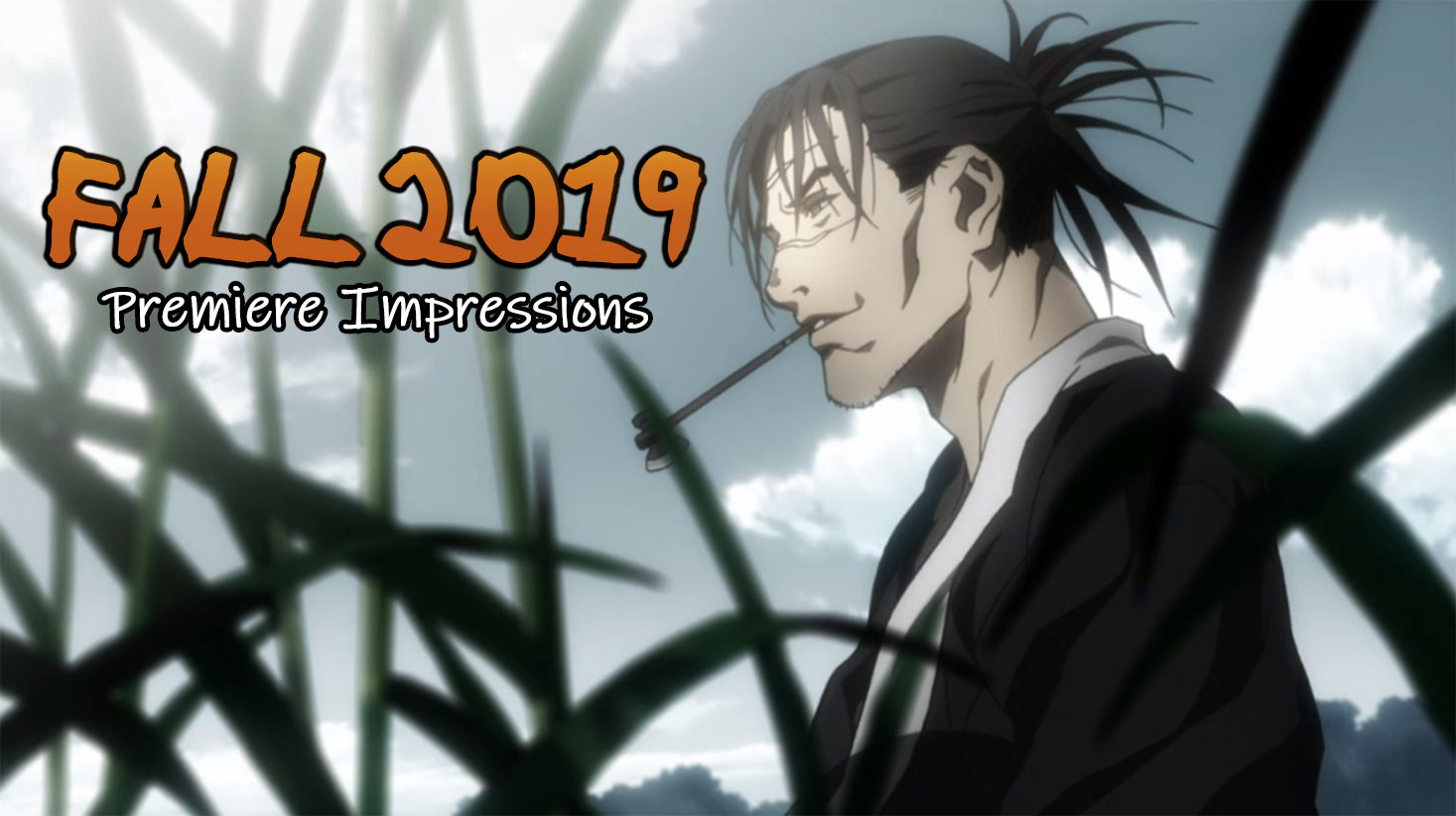
Contributers: Congress, Shymander
The weather is getting steadily colder, birds are beginning to flock south, and trees are starting to shed their leaves in droves. That's right—the fall season is here, which means we've been treated to a whole new array of anime, featuring everything from isekai and basketball to board games and cyberpunk noir.
There's just so much that you could watch... and to help you make the best selections for your Fall 2019 watchlist, we went through the premieres for 29 of this season's shows and provided our detailed first impressions here. Of course, our reviews won't be able to tell you the whole story (shows can get better or worse over time, after all). However, we've found that first impressions can do wonders for weeding out the bad... while also bringing special attention to the good.
For the purposes of this article, we've excluded sequels like Shokugeki no Souma: Shin no Sara.
You can find out where shows are simulcasting here.
Disclaimer: all impressions are based on premiere episodes only, and represent the writers' personal opinions.
Actors: Songs Connection ⭐2.5/5
Shymander
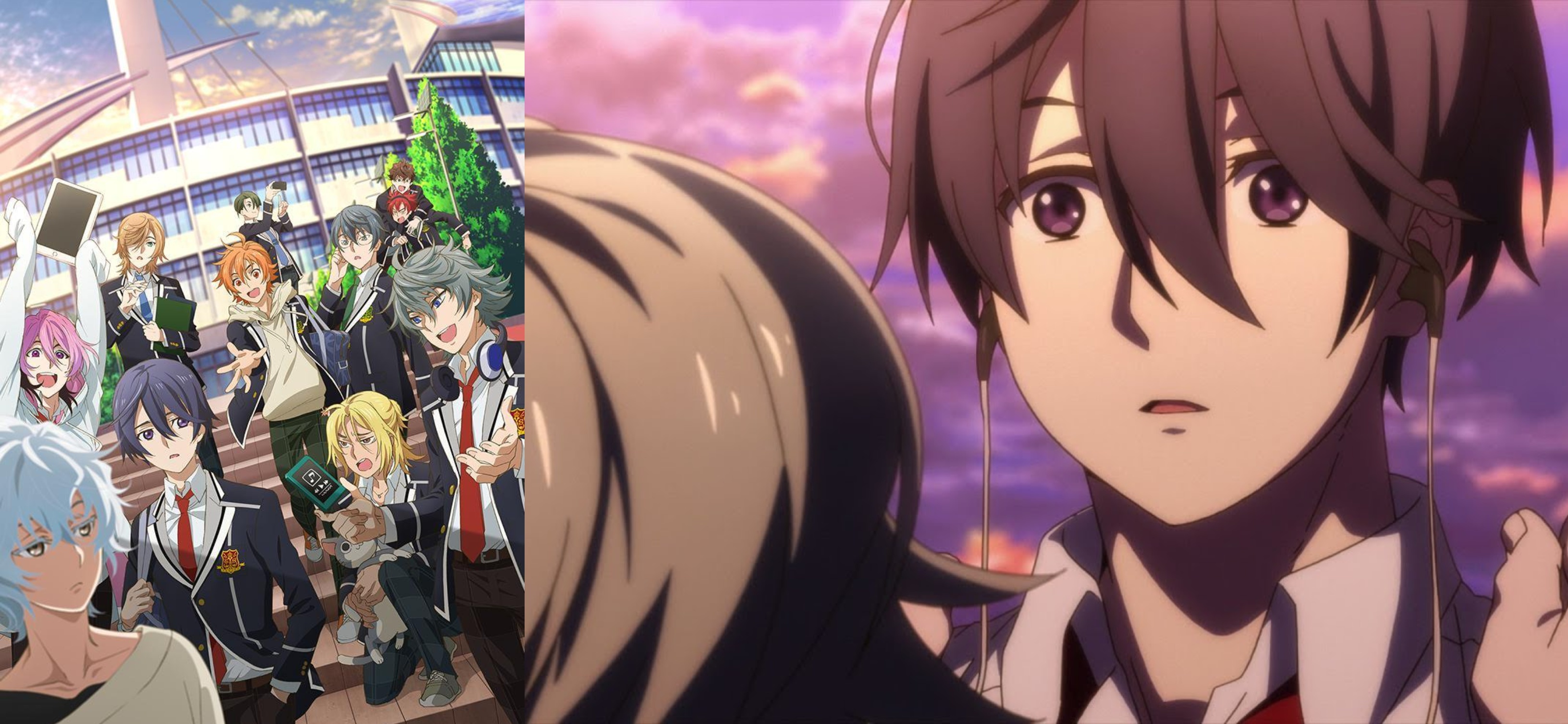
At first glance and at its core, Actors: Songs Connection is your standard male idol ensemble anime. It has a main character with a tragic past that holds him back, a pointless overarching metaphysical concept ("white shadows"), and it attempts to introduce as many characters as possible in the first episode. However, I was actually relatively pleased with how they handled the final element for once: a more effective spread of screen time and a decent amount of characterisation were given to relevant characters, rather than immediately throwing them all into some impactful event. Something as simple as that makes the cast we've seen so far feel more like human beings than cardboard cutouts set up in Akihabara to attract shoppers willing to drop bags of money on pretty boys. But admittedly, the persistent rotation of boy after boy meant that most of their names and personalities still went through one ear and out the other.
After the sloppy execution of Mikagura Gakuen Kumikyoku (TV), I was looking forward to watching another crack at the "competitive clubs" premise, but it seems this will just be another backdrop for shallow fanservice like last season's Ensemble Stars!, though not as egregiously. Actors: Songs Connection does attempt to set itself apart by starting off with an emotional tone over a typical happy-go-lucky one, but that was diminished by the cycle of characters only briefly flashed on screen. However, the first performance we hear, "Cloudy day" by Saku, was surprisingly impressive and attention-grabbing on its own, both visually and auditorily.
Compared to its male idol counterparts, such as Ensemble Stars! and The iDOLM@STER SideM, the insert songs rate on the higher end for me. I was introduced to a few prior to watching, and they were certainly more memorable than anything I heard from Ensemble Stars!, but lacked the rich personality of SideM's collection. Still, I'm pretty keen to hear more.
Summary: Actors: Songs Connections manages to dodge some of the pitfalls that trap many of its predecessors and offers a promising selection of music from the get-go, but has yet to showcase anything inspiring in its vague plotting and characters.
Africa no Salaryman (TV) ⭐3.5/5
Shymander
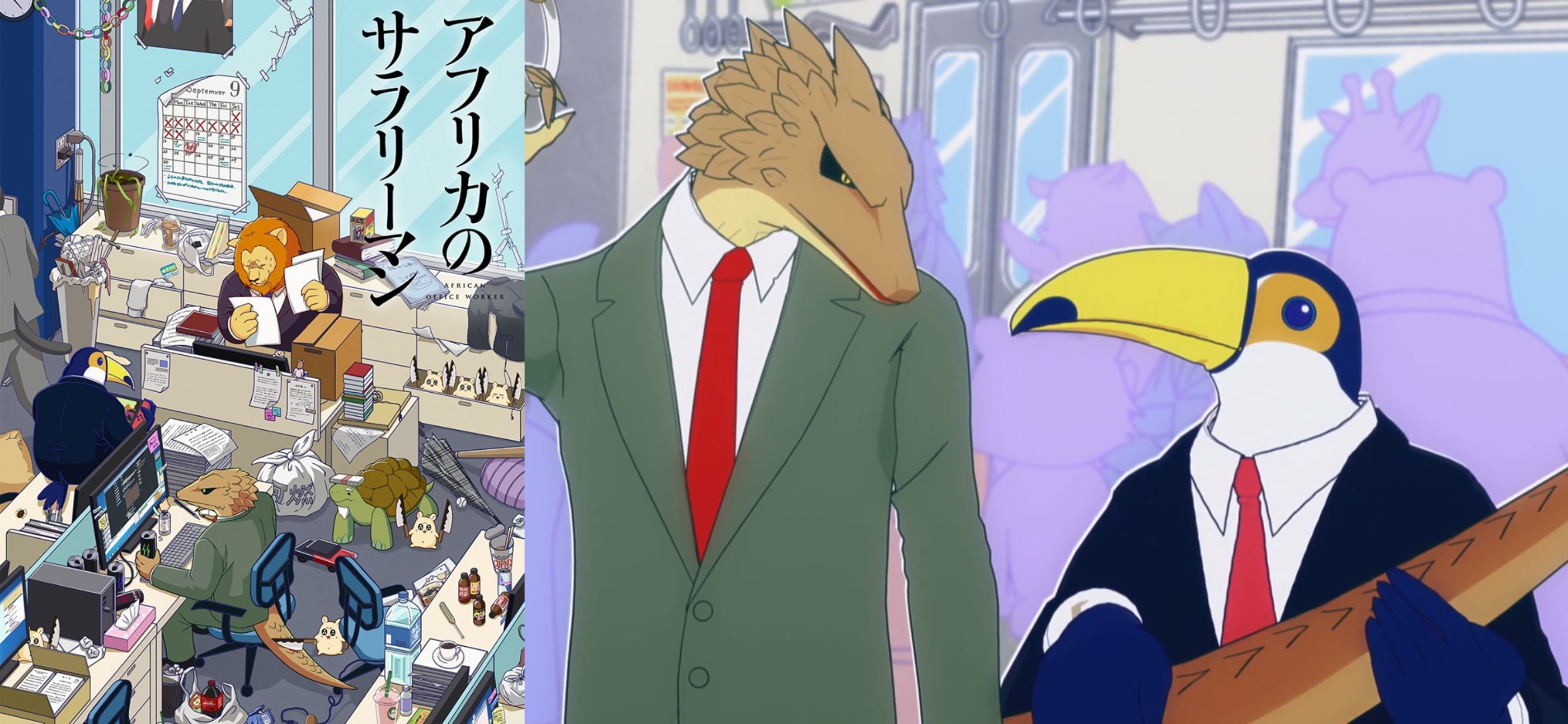
As someone who labelled Aggressive Retsuko (ONA) as their favourite anime of 2018, I was both keen and hesitant about Africa no Salaryman (TV), which visually follows the same premise of anthropomorphised animals in an office environment. It also has to compete with Beastars, another show featuring both predators and prey in a modern setting that is one of the most promising shows this season.
Unlike its chibi counterpart, Africa no Salaryman (TV) has full-length episodes made up of several short skits and focuses on absurd animal-based comedy rather than emotional, relatable content. It isn't the refined kind of absurd that you find in Nichijou or Sakamoto Desu ga?, but rather the brutally crude gags of Poputepipikku. Though if the first episode's discussion thread is anything to go by, most of its audience are all for it like myself. It has just the right amount of over-the-top that occasionally leaks into the absolutely baffling, so much so that I had to pause the episode more than once to wheeze in both amusement and disbelief. Toucan ripping off Lizard's tail more than once to make a quick, bloody getaway, and his misunderstanding with a pig were certainly the hysterical highlights. Hiro Shimono, Kenjirou Tsuda, Akio Ootsuka each deliver solid performances that bring out the trio's individual traits — a soft, mature lion, a reserved lizard, and an inappropriate toucan — though Shimono's Zenitsu-style screeching Tou-can get a little grating at times.
The occasional 3DCG started out like a lion stealthily stalking its prey but eventually became like a peacock in mating season. Well, to be more specific, a peacock still without a mate since its movements are conspicuously awkward and twitchy. But that's not to say Africa no Salaryman (TV) doesn't have potential in its visuals: its tail feathers, the outrageous artstyle contrasts and switches, are still something to gawk and squawk at (just ignore the Fortnite dances in the opening theme). Put simply, the show's visuals and humour have entertained me more than most shows this season so far.
Summary: Comedy is hard to recommend due to disparate senses of humour, but Africa no Salaryman (TV) is comfortably one of the most gratifyingly shameless and surprising shows this season whether you enjoy its bestial brand of entertainment or not.
Ahiru no Sora ⭐4/5
Congress
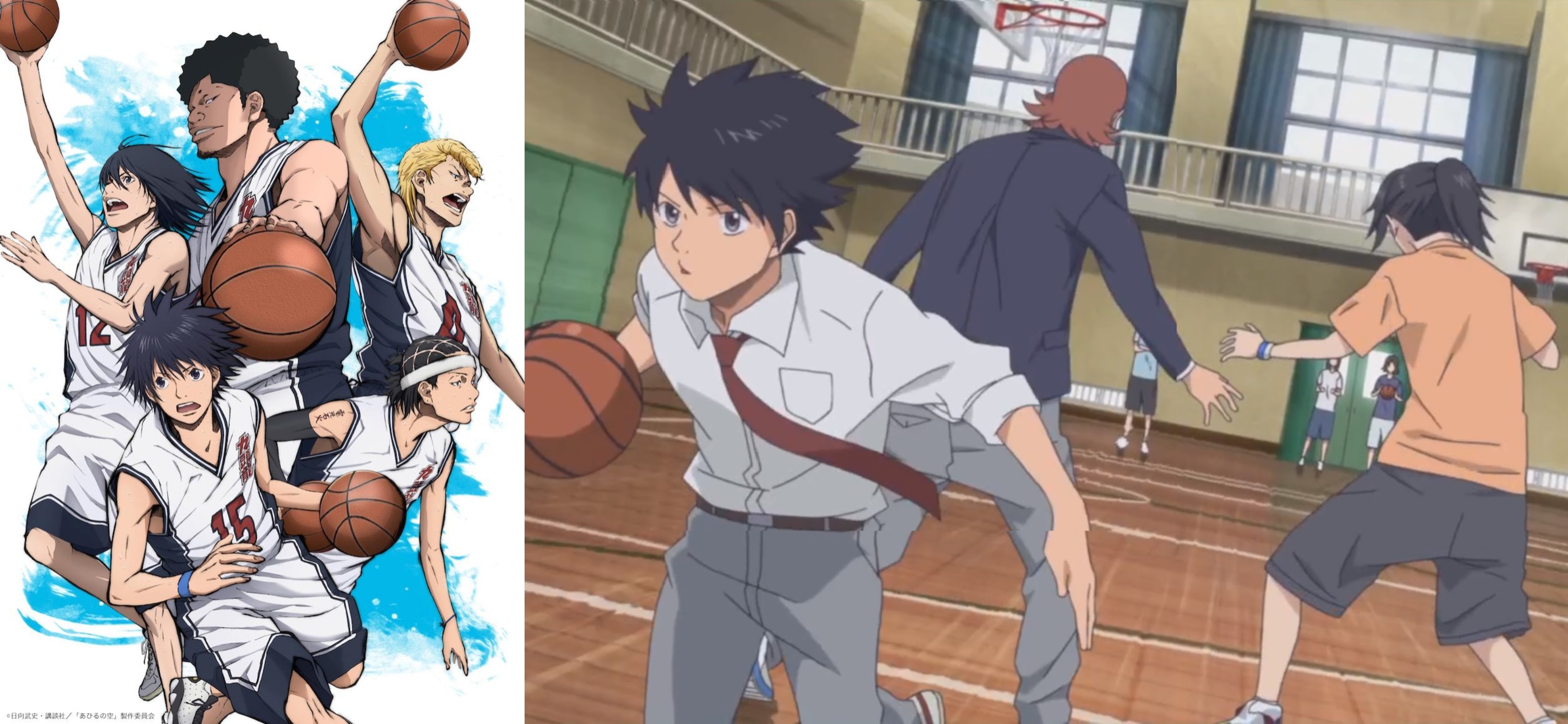
This show seems to strike at all my weak spots. There's an underdog character who's bullied and ridiculed for something out of his control. Said underdog character perseveres nonetheless, and when he is given the opportunity, reveals that he was hiding some serious talent all along. Finally, and perhaps most importantly, all the people around him are "unbelievers," both in him, and to some extent, themselves.
There's been a rise in this kind of storytelling lately; the first two instances of it that come to my mind are One Punch Man and Hacksaw Ridge. The "flat arc," or so it's called, a story in which the majority of character growth isn't centered on the hero, but on the people around him—in Ahiru no Sora, the hero is Sora Kurumatani, a high school freshman who everyone looks down upon (heh) for his decidedly below-average height. Thing is, he's a god at basketball, and his passion for the sport is as wholesome as it is intense.
This passion of his, along with his resolve, are put to the test when he tries to join his school's boy's basketball team. The team is basically defunct; the five members it has left are all delinquents who have no interest in basketball, and they only use it as an easy way to fulfill their club or team sport requirement. They're certainly unlikeable at first. But given how tall they all are, and how the show has already dropped hints that there's more to this group of slackers than meets the eye... well, I have a hunch that Kurumatani's passion and sincerity is going to have a very marked effect on them. And I can't wait to see that happen.
Ahiru no Sora doesn't really tread new ground, but its premiere lays the foundations for an emotional journey exploring the well-worn but ever-important themes of friendship and passion. It's a classic tale, and if Ahiru no Sora can maintain the momentum of its "flat-arc" approach and deliver well on the basketball itself (the animations we've seen so far of Kurumatani dribbling are eye-catching without being over the top)... this could become the first sports anime in a long time to really draw me in.
Summary: This premiere is a strong introduction to what will likely be an emotional tale of a passionate individual bettering the world around them. The main character is very compelling so far; the rest of the cast holds just as much potential.
Assassins Pride ⭐3.5/5
Congress
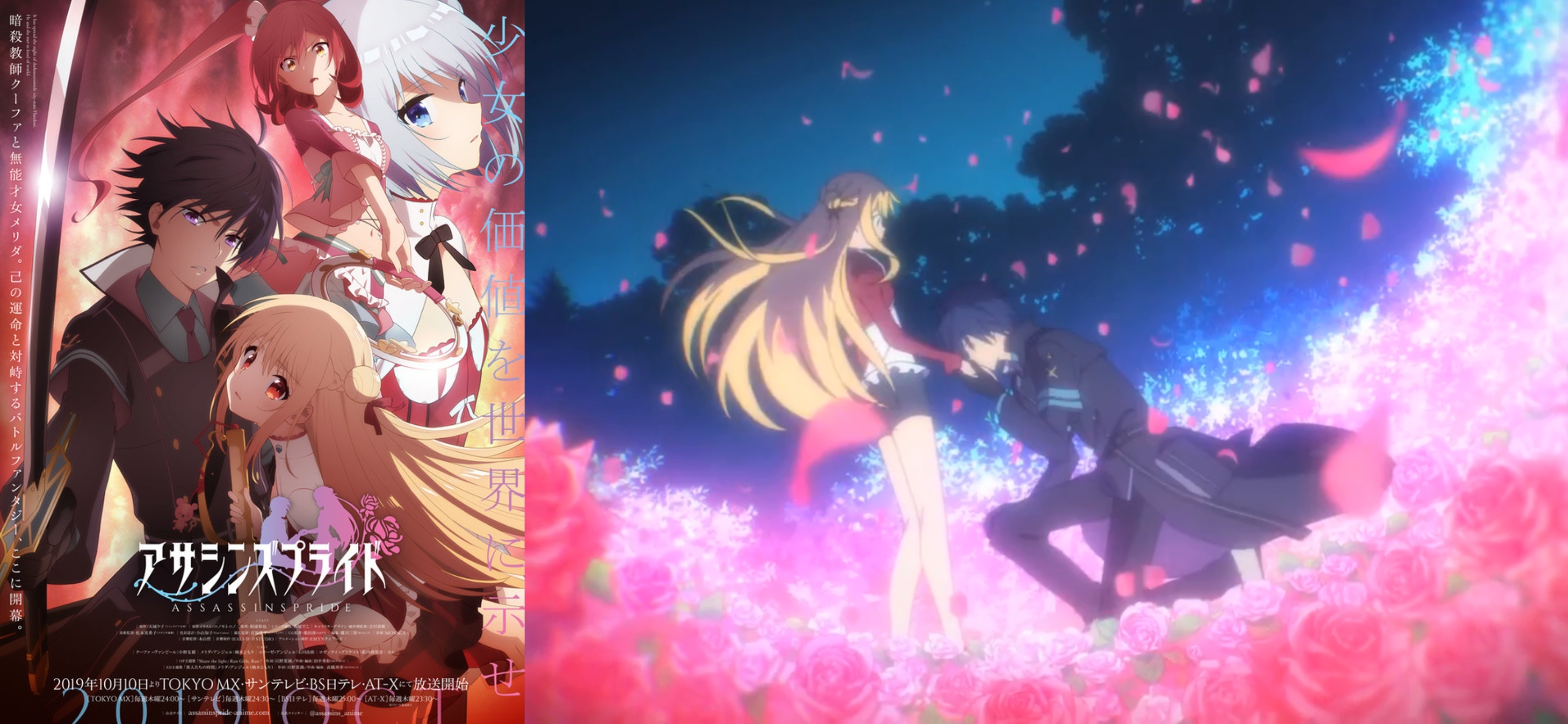
Assassins Pride starts off with a (literal) bang, as a group of hooded figures fire their guns at a hero who looks uncannily similar to Kirito from Sword Art Online (by the way, the main heroine looks uncannily similar to Asuna...). To complete the illusion, our Kirito look-alike confidently deflects all of the bullets coming his way with his sword before proceeding to make quick work of his opponents. Despite how lazy this character intro is, it's actually quite efficient—right off the bat, I knew exactly what kind of MC we had on our hands, that he was going to be edgy, aloof, overpowered, and very popular with the ladies. What I didn't know, however, was that the rest of this premiere would play out more like the intro to a shoujo than a typical OP MC fantasy romp. And though unexpected, I'd wager that it's one of the major reasons I rather enjoyed watching this one.
Melida Angel, a melancholy noble girl who's supposed to be able to harness the magical powers of mana, but can't. Kufa Vampir, a cold and overpowered assassin who's been hired as Melida's tutor, but is actually there to kill her. Anyone who's read their fair share of shoujo might find this rather familiar—it feels like a classic pairing, where a diligent and wistful, but largely powerless, heroine encounters a cold but incredibly powerful hero who gives her the keys to make her dreams come true. And while this basic story arc isn't all that interesting in and of itself, the fact that I was expecting it to be more stereotypically "shounen" made it feel more novel than it perhaps really is. In any case, there are lots of intriguing plot points and drama to be had here (I raised an eyebrow in appreciation at the show's inversion of the "secret blue blood" trope, in particular), and I expect to see some great face-slapping moments in the future, when the people who previously looked down on Melida get their comeuppance. It's generic and predictable, but the atypical framing makes it feel satisfying nonetheless.
Assassins Pride's premiere isn't all good, of course. There are certainly pacing issues, with many of the core moments happening way too quickly for my tastes. The main character's "change of heart" in regards to his task is a particularly egregious example of this, as it occurs without nearly enough of the build-up it needs to come across as believable. Another complaint I have is with the atmosphere, which, while fitting on one hand, is conspicuously overdone on the other. If I were to describe the first episode of Assassins Pride in a single word, I would choose "extra." Everything about it is dark and intense, from the way the characters carry themselves to the way the entire world is structured. Actions are shown with more weight than I feel like they deserve, and the cities in this world exist within the bulbs of a gigantic candelabra (yes, literally), with street lamps providing the only source of light in the absence of a sun. It's definitely melodramatic. And as I may have hinted at earlier, Kufa Vampir is also trying way too hard (just look at the name). He's supposed to come off as cool, but his brooding nature is cheesy and mildly cringey more often than not.
The premiere of Assassins Pride has its objective shortcomings, and it falls shy of being as cool as I think it wants to be. However, there was something strangely attractive about its candor, and its inclusion of somewhat Shoujo-like themes is refreshing in a way I didn't expect. All in all... surprisingly enjoyable.
Summary: A melodramatic premiere that contains a mishmash of shounen and shoujo tropes. The result, while not the most well-executed or the most cohesive, is confusingly entertaining.
Azur Lane ⭐2.5/5
Congress
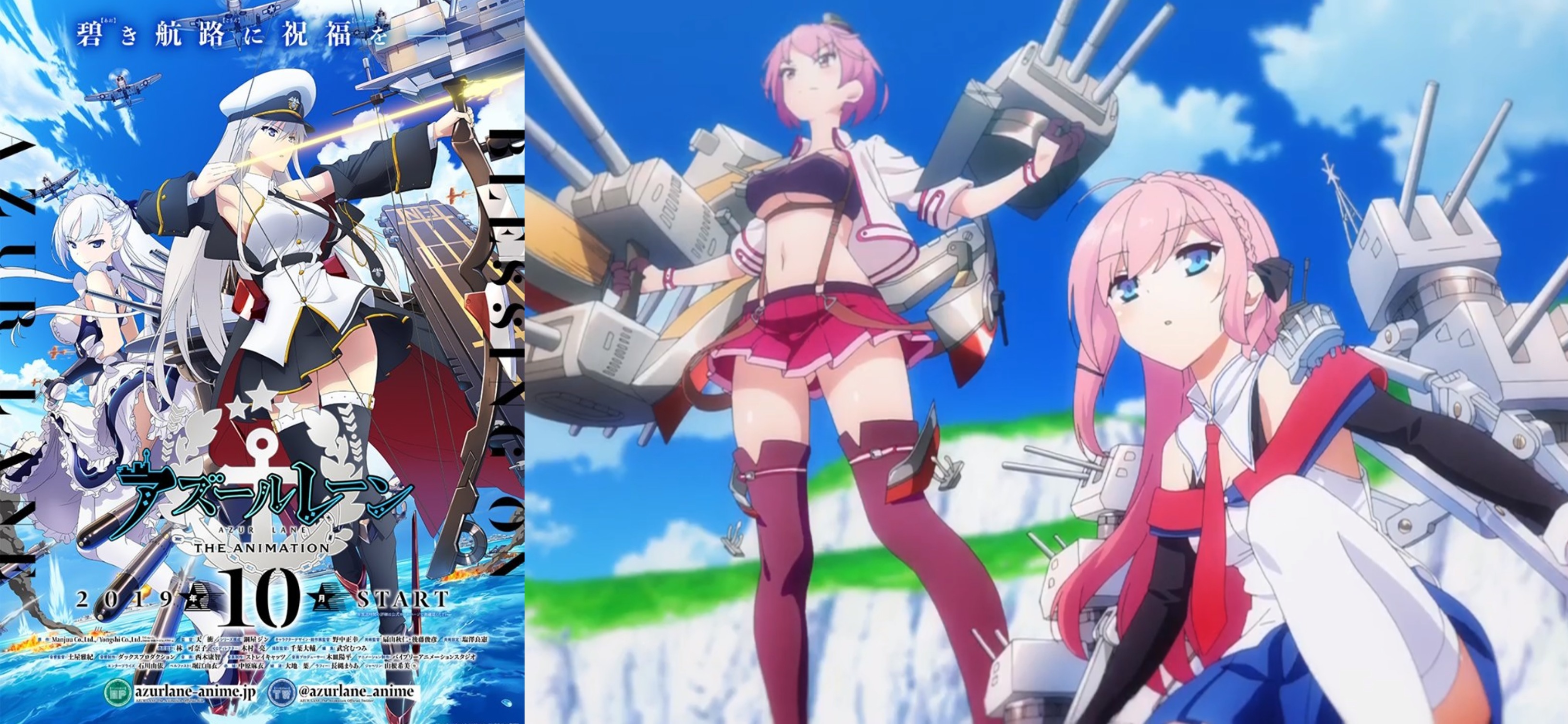
An Axis task force, led by aircraft carriers Akagi and Kaga, quietly waits outside the waters of an Allied naval base as the destroyer Ayanami scouts on ahead. For now, all is calm; the sheer white walls of the base are positively glowing under the midday sun, and birdsong mixes in with the lazy, rhythmic lapping of waves against the shore. But then, there is a boom in the distance, and the tranquil scene is suddenly shattered by the roar of artillery and the howl of strike aircraft. All the Allied ships present, from the Unicorn to the Laffey, quickly leave their now-burning harbor to try and fend off the Axis attack.
No. This isn't a description of a WW2 engagement, of ships from the Japanese Navy facing off against ships from the United States Navy and the British Royal Navy. Rather, it's the Sakura Empire against the Eagle Union and the Royal Navy (I always found it strange how this name wasn't changed), and the various "ships" are not actually ships, but anime girls wielding miniaturized gun batteries, torpedo tubes, and flight decks. Such is the world of Azur Lane, a world in which famous warships from history are turned into "shipgirls" or "shipfus" (a portmanteau of "ship" and "waifu"), and are pitted against each other in epic, but awkward-looking slugfests out on the ocean blue. This concept, though outlandish to say the least, has actually worked out quite well for the Azur Lane mobile game.
But does it work as well in anime form? It really depends.
Frankly speaking, I expected this anime to be little more than a piece of overproduced fanservice for people who already play or know about the game. The show is likely going to fall very, very flat for anyone without a vested interest in Azur Lane or at least the concept of shipgirls. The story so far is not engaging enough on its own, and the characters will have little to no appeal to anyone who doesn't recognize them or the historical ships they're supposed to represent. The character designs are strong, certainly. In fact, it's one of the biggest selling points of the game. But with so many individual shipgirls already introduced in just the first episode, the show has no choice but to gloss over virtually all of the characters, resulting in a cast that feels more like a big group of cameos than something truly cohesive.
Azur Lane's premiere delivers very well in the visual aspect. The attractive character designs carry over from the game, and the shipgirl action, though CG-heavy, is a feast for the eyes. Where it fails, however, is providing a reason for people outside the target audience to stay along for the ride. I'll definitely stick around, as I am both A. a fan of shipgirls and B. big on WW2 naval history. But for anyone who hasn't seen USS Cleveland depicted as a young teenage girl before or doesn't know the significance of Enterprise's nickname, the "Gray Ghost," the appeal of this show is going to be limited indeed.
Summary: If you aren't a fan of shipgirls, there's really not much for you here. If you are a fan, however, Azur Lane's wide cast of characters, well-animated action, and ample fanservice should give you more than enough reason to come back every week.
Babylon ⭐4/5
Congress
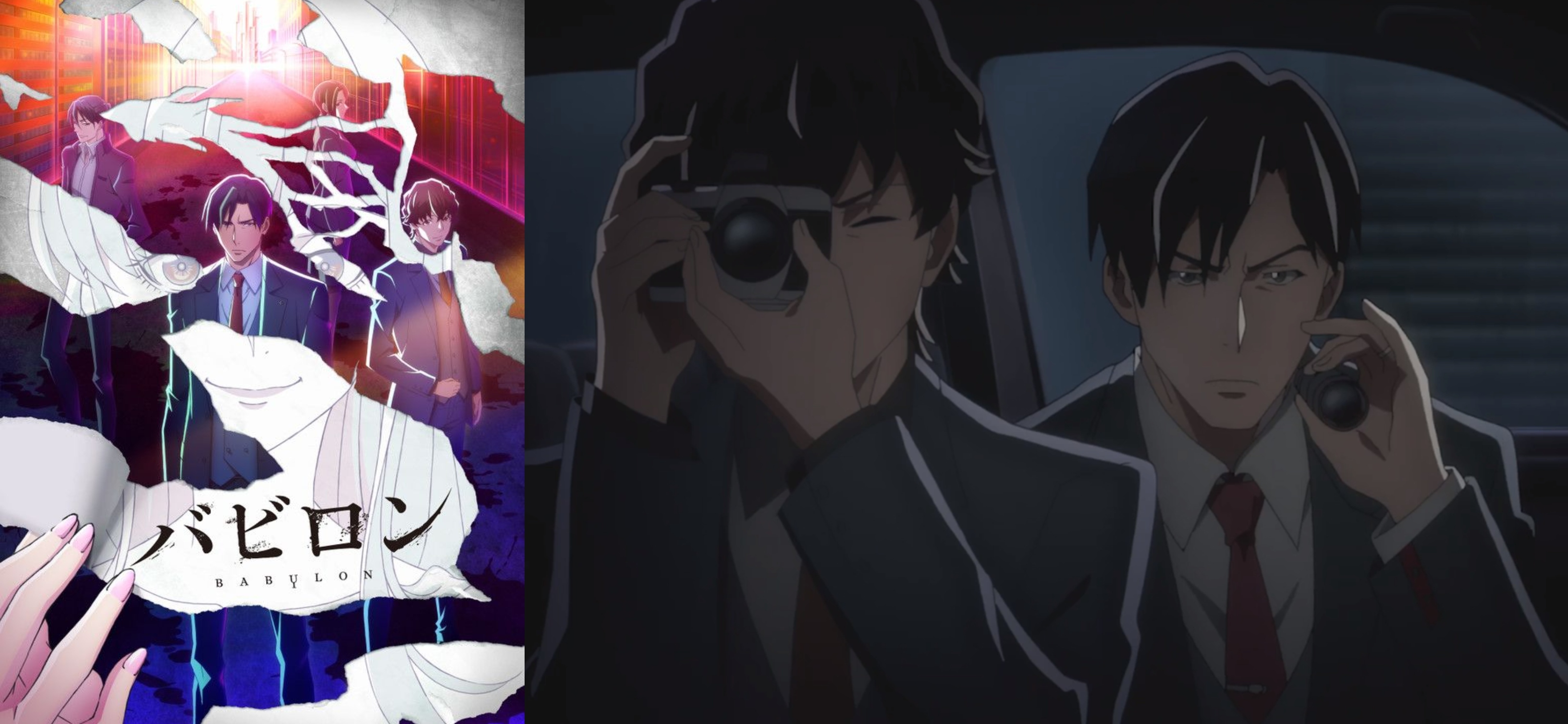
Having gone in without reading the synopsis, it wasn't immediately clear to me why this show was titled "Babylon". But as the premiere slowly eased me into its story, I began to gain a pretty good idea. Babylon, or "Babylon the Great," a powerful city that was as rich and opulent as it was, according to some sources, teeming with unchecked evil and debauchery. All that glitters is not gold, or so the name has come to mean, and it's an adage that seems to apply at virtually every moment in history—including now. Power and greed corrupt absolutely, and there is always heinous crime hiding behind the clean, emotionless facades that make up much of our modern world.
Babylon attempts to give us a no-nonsense look at some of this evil, eschewing the flashy action and gratuitous drama that many other crime-solving shows often use in favor of a more realistic and calculated approach. Instead of opening with perhaps the scene of a violent murder, Babylon begins with the calm and collected raid of a corporate office. There's no blood, no body, no crime of passion to uncover (ahem). Just papers, rows upon rows of numbers, and greed. As the story progresses, moving away from corporate crime into something that is much more political in nature, its clinical tone persists... and the result is a show that feels very different to virtually everything else I've watched so far this season. The intent of this show is not to be fun or to instill feelings of optimism. Rather, it is quite pessimistic in its approach, pitting justice and youthful sincerity in what ends up being a lethal battle against deeply rooted corruption.
Of course, Babylon is not all doom and gloom. The public prosecutor it centers around, the levelheaded Zen Seizaki, provides a source of much-needed hope amidst all the dark. Something about him convinced me that he's absolutely, definitely, going to get this job done, and it left me eager to see him struggle and succeed, to eventually bring evil to heel at the feet of justice.
The first episode of Babylon is filled with palpable suspense, all of which culminates in an unexpected kill shot at the very end of the premiere that left me desperate for more. The first three episodes of this show were released simultaneously, and I had to really hold myself back from moving on to the second episode before getting around to writing this impression. A show like this lives and dies by the way it handles its intrigue. And Babylon, it seems, is going to live, if not thrive.
Summary: A well-executed introduction to a crime-solving drama that will undoubtedly be filled with anxiety-inducing twists and turns. Though it didn't exactly blow me away, Babylon's thoughtful and poignant atmosphere definitely pulled me in.
Beastars ⭐5/5
Shymander
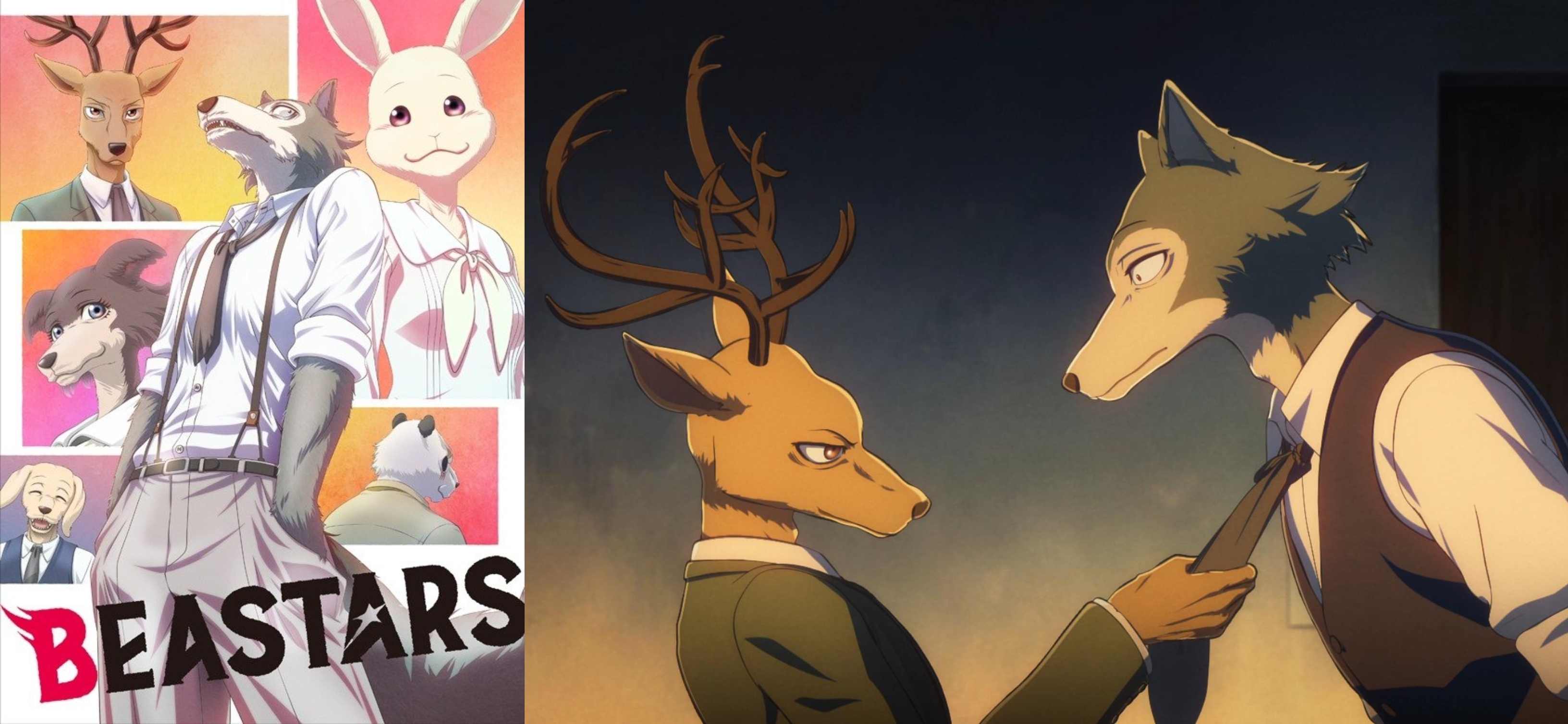
After leaving Beastars for second-to-last on my watching list, I started to worry that I wouldn't see anything worth more than a 4/5 out of Fall 2019. I have a fondness for anthropomorphic animal characters and I'm aware of the manga's reputation, so I felt confident that I would at least mildly enjoy whatever Beastars had to offer. I was wrong… it is easily the most outstanding premiere this season. For a show featuring only anthropomorphic animals, it's a cruelly human tale filled with intrigue and imagination.
I'm sure many of you have watched or at least know of Disney's Zootopia, which came out in the same year as Beastars' manga and has the same underlying themes of class divide in society and breaking through enforced stereotypes. Beastars, however, narrows Zootopia's broader vision to a more nuanced high school setting that brings out the deeper emotional struggles of its teenage inhabitants. Legoshi, a shy and thoughtful wolf, and Haru, an assertive and sexually promiscuous bunny, form a perfect duality: one wants to suppress their carnal desires to live a normal life, while the other wishes to break free of expectations placed upon them and live their own life. Despite the ears and fur, they're identifiably human underneath.
Beastars' well-constructed dialogue reveals a gratifying amount of details about sociological dynamics in just one episode, such as inter-species relationships and social group patterns. Apparently in the world of Beastars, endangered species and "pure-bloods" are a thing, which puts an interesting spin on the typical romantic labyrinth of school life. Of course, good old-fashioned racism is still afoot, like the prey vs. predator dynamic and species-specific insults like Louis' comment that the only talent goats have is eating paper and Legoshi should embrace his ferocious nature as a wolf. Although the interactions and behaviours of various animals paint a detailed sociological picture, a small plothole did stick out like a sore thumb. Everyone is surprisingly calm about a fellow student being eaten alive at school, which only results in harmless gossip and a light confrontation. It may very well be an important point about their society and its fragile rigidity, but it still makes me slightly question what is otherwise a very compelling setting.
Much like anime of disparate genres, Beastars must be judged visually within its own category of CGI and not just slapped with "it's CGI, so it's automatically not as good" as many people are quick to do. I can't blame them though since CGI anime often are visually disconcerting, but that does a disservice to the masterful work in studio Orange's latest project. If you haven't seen the underwatched gem that is Houseki no Kuni, they are on the forefront of what all CGI anime should aim to be. Beastars fully utilises the benefits of 3D animation to great effect by implementing a high level of minute detail into the designs and movement of every character that would be unachievable in standard 2D animation. Beastars' provocative layouts, from Haru's humiliation at the hands of bullies to Louis power-grabbing Legoshi's tail, perfectly capture "nature within nature." The ingenuity and imagination don't stop there: although it's not shown in the premiere, the opening theme is made in gorgeous stop-motion with an incredibly catchy tune.
Summary: The sheer creativity and innovation put into Beastars is above any other show this season, and I don't think I would want to have it any other way.
Choujin Koukousei-tachi wa Isekai demo Yoyuu de Ikinuku you desu! ⭐1.5/5
Shymander
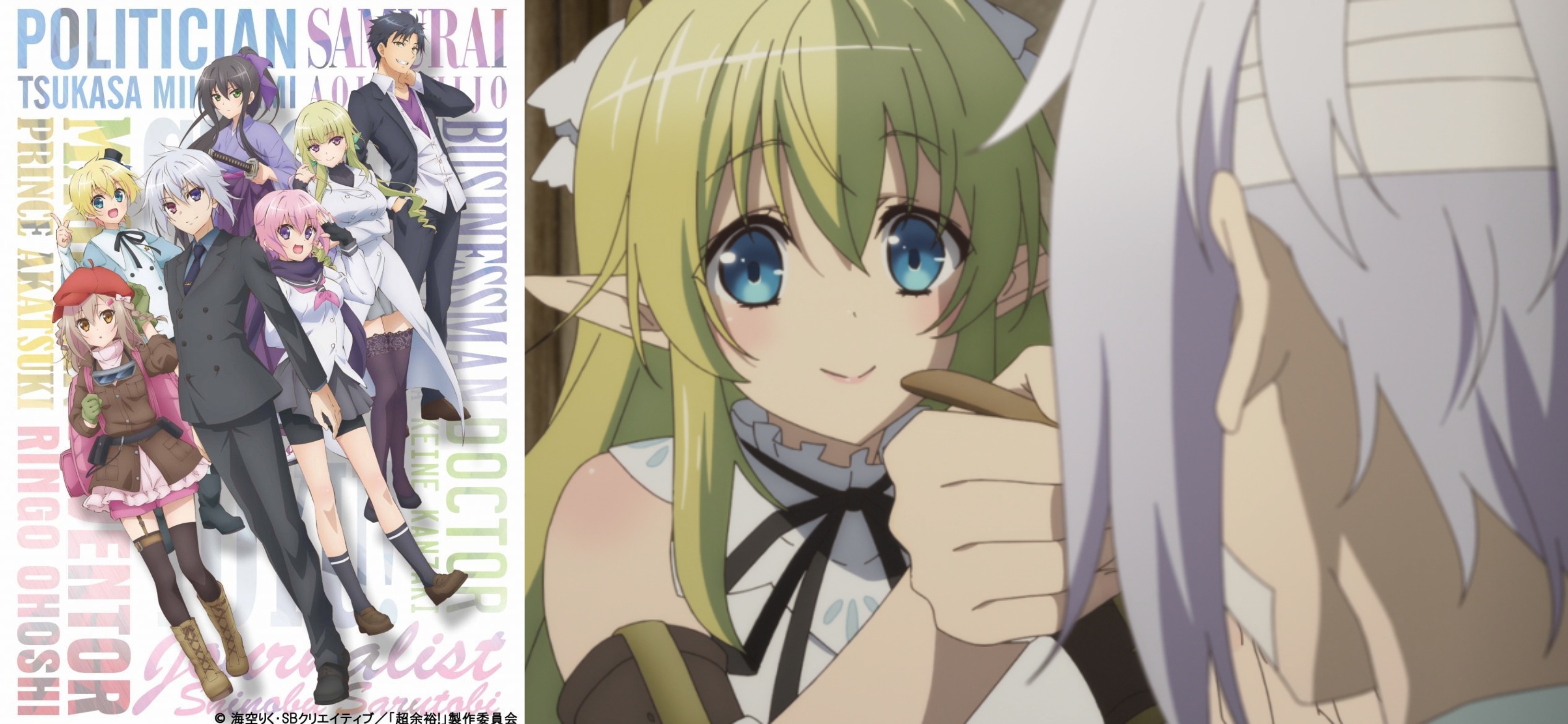
Maybe it's because I came out of last season's Nakanohito Genome [Jikkyouchou] feeling rather disgruntled about another misused cast of one-defining-feature characters, but I'm already tired of this show's entire shtick after a single episode. Although, to be fair, the senseless execution is also a pretty major factor.
The seven titular "high school prodigies" each have their own respective field of expertise: inventing, swordsmanship, medicine, magic, journalism, and politics. They're certainly quite the colourful, mismatched bunch despite only being in high school. I mention that last part because the first episode beats you over the head with it trying to convince you of how truly incredible they all are, but the sheer pretentiousness and illogic of their introductions instead makes you feel alienated from caring about them and their exploits completely. Tsukasa Mikogami (the politician) has just been elected as prime minister a second time… despite being in high school; Masato Sanada (the businessman) has a hand in a third of all global monetary transactions… despite being in high school; Aoi Ichijou (the swords(wo)man) takes out enemy combatants in a war zone… despite being in high school, and so forth. I'm not entirely sure how any of them are quote-on-quote "in high school" with these professions, but apparently that's the case. In fact, their very existence as a group is confusing since there is zero explanation for why these seven prodigies with seemingly wild schedules were even on a plane together in the first place, which lingers over any judgment of their character chemistry (though I can tell you it's already lacking in that department).
The fantasy world they crash-land into isn't anything fancy: there are busty elves and beast people like any other other world. The fanservice in that regard is also rather concerning, because the first episode alone swings between anime-standard boob jiggles and sloppy mouth-to-mouth feeding right out of hentai, so it's pretty unpredictable in that department.
However, these kinds of shows are usually meant to just be blindly enjoyed; a guilty pleasure, if you will. But "high schoolers" pulling off increasingly impossible feats in a bland world full of plotholes, though impressive, is simply not the most interesting material to indulge in for twelve episodes — it takes all the worst parts of power fantasy isekai and multiplies them by seven. Compared to the many other isekai series this season, you're probably better off watching Hataage! Kemono Michi or Shinchou Yuusha: Kono Yuusha ga Ore Tueee Kuse ni Shinchou Sugiru than this disappointment.
Summary: There are more plotholes than prodigies in the first episode of Choujin Koukousei-tachi wa Isekai demo Yoyuu de Ikinuku you desu!. Devoid of fun and common sense, decent technical elements don't save this show from being a below-the-numbers snoozefest.
Chuubyou Gekihatsu Boy ⭐3/5
Congress
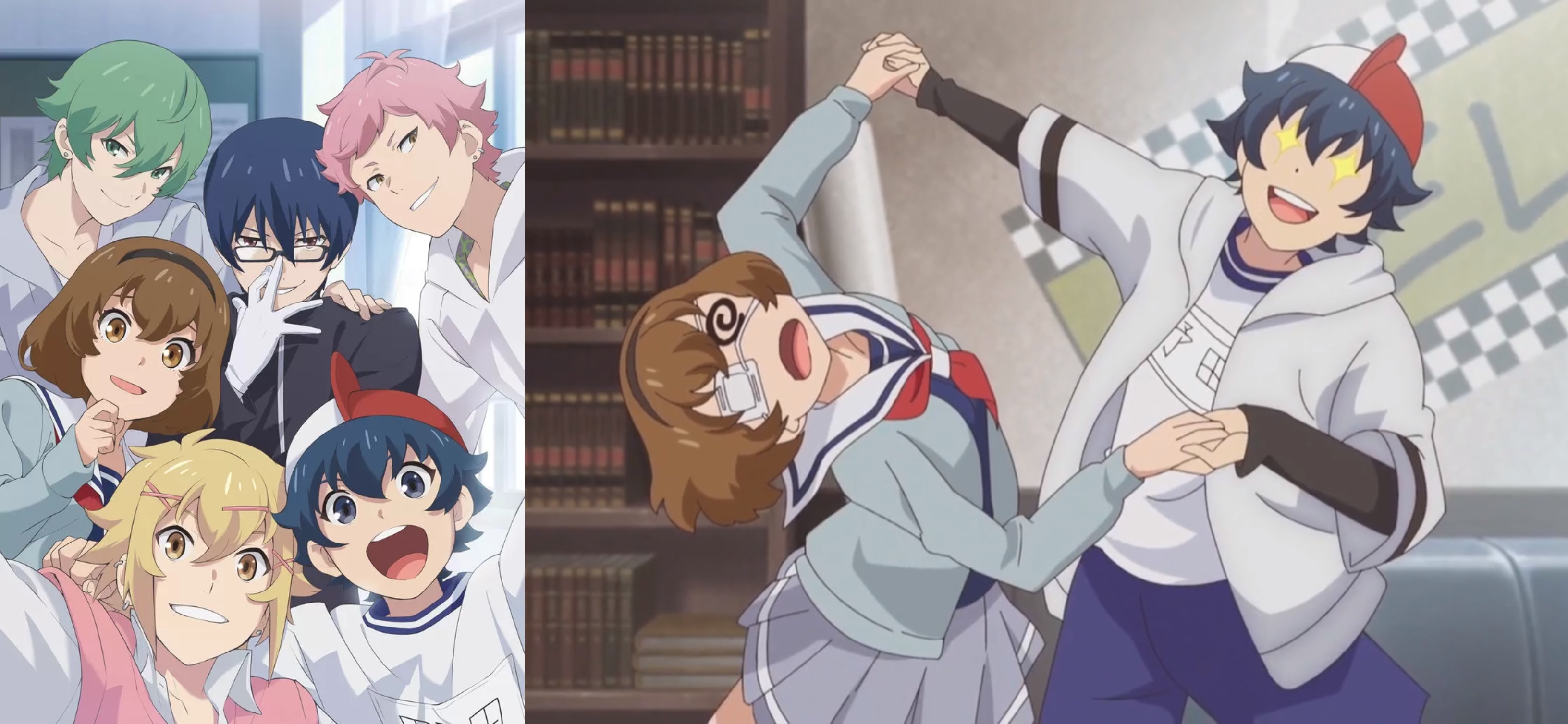
Chuubyou Gekihatsu Boy's setup is fairly straightforward. Mizuki Hijiri, a high school girl, transfers into a new school and becomes acquainted with (and most likely will eventually befriend) a number of boys who suffer from extreme cases of chuunibyou. If that sounds rather "meh" to you, don't worry—you definitely aren't alone. I went into this premiere largely unimpressed by the synopsis, and I remained unimpressed as the show introduced me to its cringey characters and their cringey and (initially) not-that-funny antics. One of them's obsessed with superheroes, one believes he's the reincarnation of a half-angel half-demon... thing, one lives and breaths mobile game waifus, one goes around wearing animal ear hoodies and a tail (how is this chuuni though?), and one (who actually hasn't entered the story yet, but who makes an appearance in the OP) appears to fancy himself a popular idol. Their stated goal is "helping people," and the first episode mostly seems to be about helping the so-far friendless Mizuki make some friends.
While that's all fine and dandy, I struggled to figure out who exactly this anime is for. Chuunis? That can't be it, as chuunis would most likely prefer to watch something that vindicates their specific fantasies. The average person? I don't think that's it, either, as I, a rather average person, found the concept not-so-appealing right from the very start. In the end, the answer I settled on is "ex-chuunis or people who once interacted with chuunis." It feels at times like the show is trying to romanticize the idea of being a chuuni, as if it's trying to evoke nostalgia of some kind. I'm sure for some people (not for me though), this will resonate, and might even be cathartic in a way.
Now, at this point, I've made Chuubyou Gekihatsu Boy sound quite lame. And it kind of is, but it's also not at the same time. Around eight minutes in—when the level of chuuni reaches a boiling point while Mizuki is visiting the boys' clubroom—the humor actually clicked. And when it clicked, it clicked surprisingly well. It's the "comedy heaven" sort of humor, where the antics are so unabashedly dumb and played so matter-of-factly that it ends up going around full circle (or in this case, through many circles) until it actually becomes funny. And not just funny, but laugh-out-loud hilarious. And as the boys try their darndest to help Mizuki (in a silly and misguided way), the characters actually start to become, dare I say... endearing?
Also of note is the decision to cast Daiki Yamashita, the voice actor of Midoriya Izuku, as the superhero-obsessed chuuni. It is a good choice indeed, as the two characters are very similar personality-wise, and the familiar voice gives the audience something to latch onto in an anime that might otherwise feel somewhat hard to get into.
Chuubyou Gekihatsu Boy didn't start off on a great foot, and it took me a few minutes to get in on the joke. And while the show definitely became much more enjoyable after it started clicking with me, it still wasn't amazing enough to leave that big of an impact. For now, my impression of this show can be summed up with a simple "pretty okay."
Summary: Chuubyou Gekihatsu Boy is quite cringey at times, but the characters' antics and kind-hearted natures eventually started to grow on me. Though not particularly compelling in my eyes, it makes for a decent watch.
Fate/Grand Order: Zettai Majuu Sensen Babylonia ⭐3.5/5
Shymander
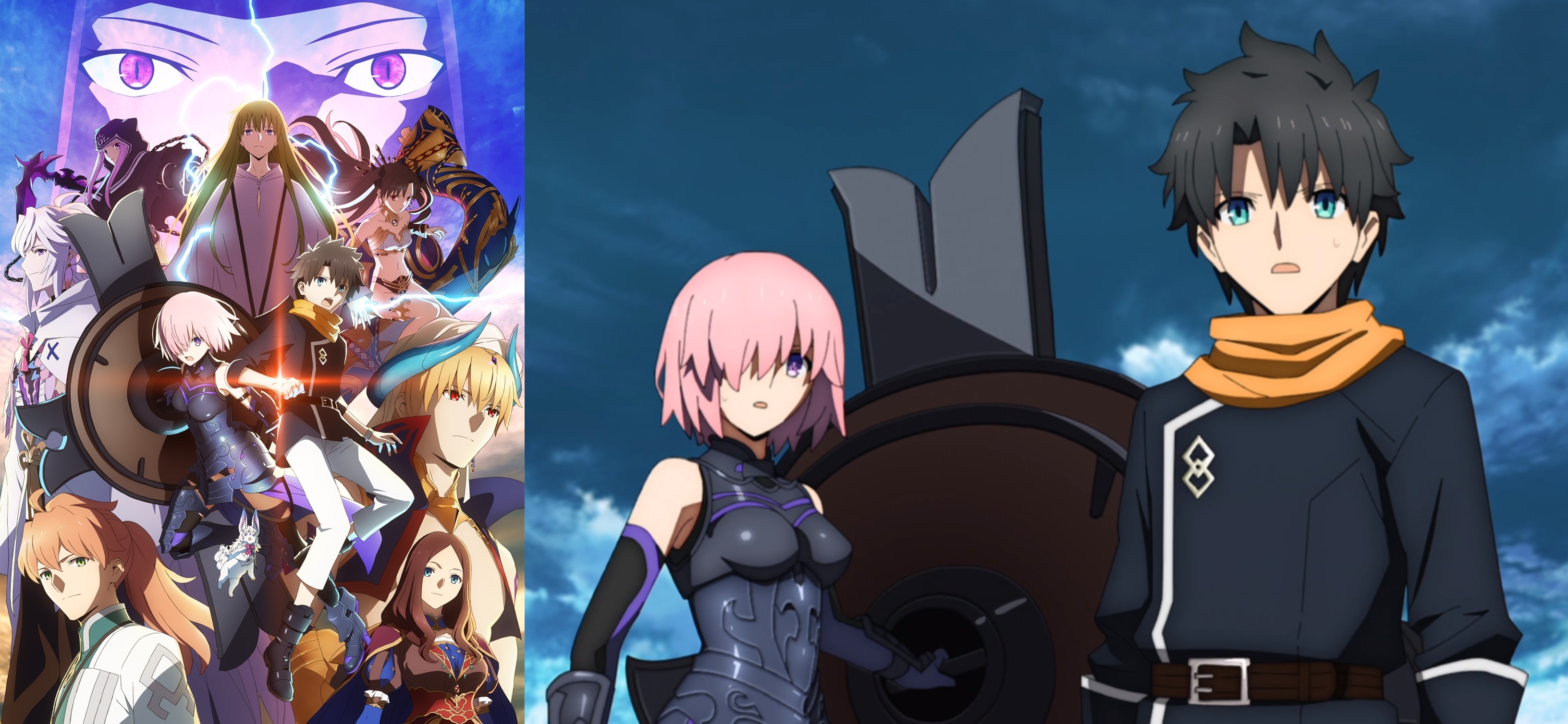
The world of five years ago was a much simpler time for the anime branch of the Fate media franchise: you watched Fate/Zero, Fate/stay night: Unlimited Blade Works, and maybe Fate/stay night, then you'd be set. Nowadays, there are all kinds of Fate anime on offer (literally) every season, from a cooking spin-off to last season's magic murder mystery.
Video game adaptations are almost always geared too strongly towards viewers who know the original material, and this latest Fate installment is sadly no different — you either need to be an experienced game player or at least have watched Fate/Grand Order: First Order (Fate/Grand Order: Zettai Majuu Sensen Babylonia - Initium Iter is optional, but recommended) to fully appreciate the anime. Even if you fall into the second category like myself, there are still knowledge gaps that persist here and there, but they are minor enough so far to not be frustratingly bothersome. That being said, the first episode is still surprisingly engaging despite those drawbacks, even if the story takes place far into the game with the seventh Singularity.
For better or worse, the first episode is a slideshow of sorts, showcasing small snapshots of story and characters but not offering much in the way of in-depth setup. Since the anime takes place far into the game, character relationships like that of Mash and Ritsuka are already far into their development, so their interactions and references to past singularities are hard to fully appreciate. Some dialogue choices had me furrowing my brow in confusion, particularly with the thoroughly de-clothed, Middle Eastern version of Rin Toosaka, whose sudden appearance and departure felt more like a "hey, here's this character" moment than a necessary introduction.
However, the little tidbits of background information and intriguing worldbuilding made me, as a non-player, very keen to learn more. I consider that to be a good thing and a bad thing: it demonstrates a good foundation for the series to build on, but it also means there'll be a fat question mark hanging over my head throughout the series since my queries likely won't be addressed in much more depth. At the very least, the impressive action sequences and pleasing visuals seem like they'll do enough to partially override that lack of thematic satisfaction.
Summary: Fate/Grand Order: Zettai Majuu Sensen Babylonia is a tricky watch due to a lack of necessary context, but its technical merits, intriguing world, and mildly interesting characters are still worth checking out for non-game fans.
Haatage! Kemono Michi ⭐2/5
Congress
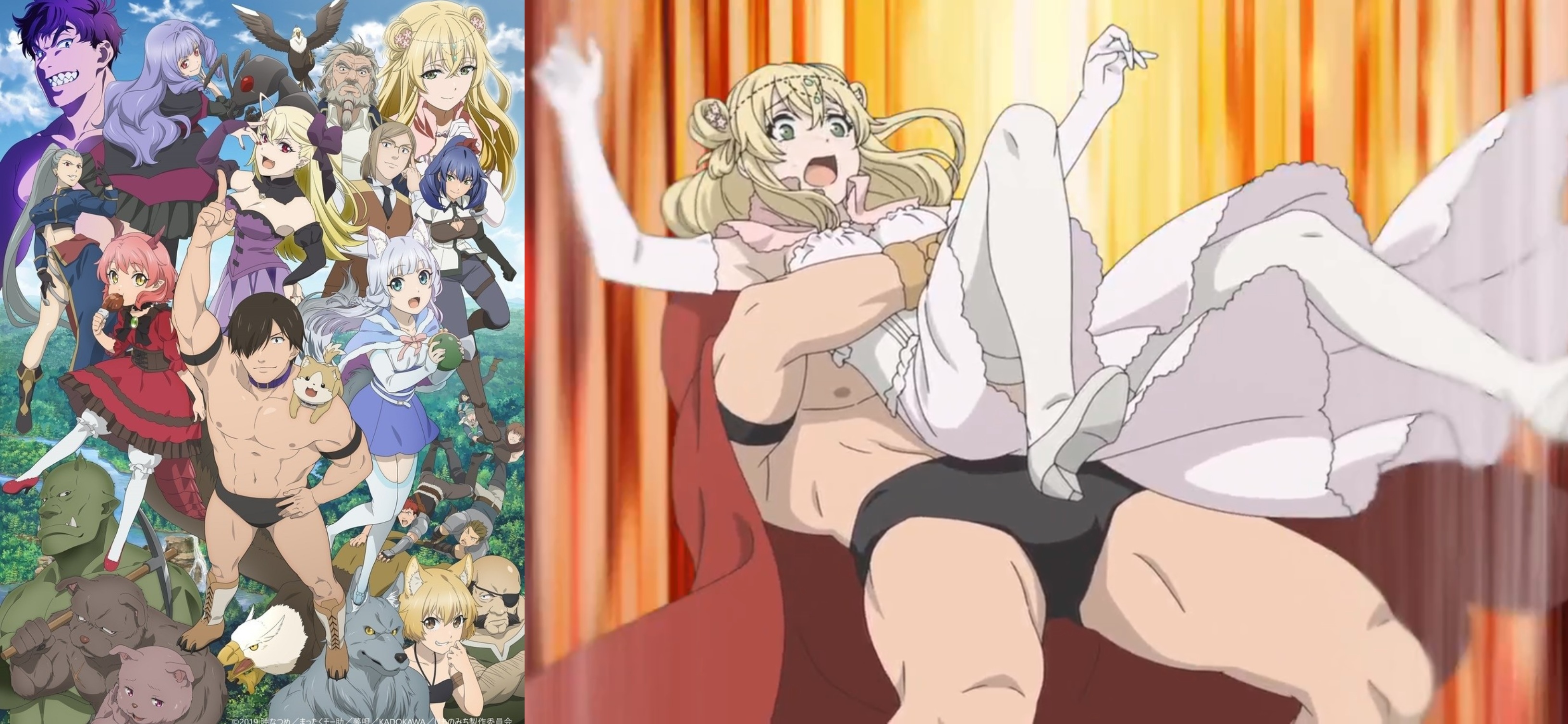
When the synopsis told me that the first thing our hero does upon being transported to an alternate world is to suplex the princess that summoned him, I raised an eyebrow in interest. When it went on to tell me that the profession our MC takes up is "pet shop owner" instead of "adventurer," my eyes lit up. "This is it," I thought. Finally, another show that presents a genuinely interesting spin on the isekai trope. I was ready. So ready. Ready for humor and novelty that isekai stories rarely manage to deliver, ready for a wholesome tale of a pet shop owner in a comfy isekai world.
And in that sense, the opening scenes certainly didn't disappoint. We were introduced to Shibata Genzo, a pro wrestler with a cute dog who dreams of making it big so he can run a pet shop and share his love of animals. Definitely wholesome. There was one particular transition that had me actually laughing out loud. Funny, yes. And then the first truly novel thing, the suplex, was also as entertaining as I anticipated. However—and quite abruptly from that moment—things started a grueling tumble downhill.
After being suplexed, the princess is left in a compromising position, legs up, panties in full display, for half a minute before the hero finally decides to cover her up. Look, I get it. The occasional pantyshot is fine, if a bit tasteless. However, leaving the poor girl like that for such an uncomfortably long time was completely unnecessary. It wasn't funny at all, and the only thing it really accomplished was to set the tone for everything else to come.
Remember that bit about how Genzo wants to "share his love of animals"? As it turns out, this love of his is of the very aggressive, almost rapey variety. What does Genzo do when he sees a wolfman? Literally pounces on him, pushes him down, and starts scritching and scratching in an act of assault. What does Genzo do when he sees a cerberus? Wraps his arms around it, pins it down head(s)first, and sniffs its butt. I've never been a fan of pervy characters, and a pervy character with no self-control is even worse. Frankly, it's extremely off-putting.
At the end of the day, the show's novelty is still there. There's also great potential in the story, and I very much want to see exactly how the whole pet shop aspect is going to play out. But if future episodes are going to carry the same unsavory tone as this premiere, I'm probably gonna have to sit this show out. Genzo and his antics are honestly way too much.
Summary: Hataage! Kemono Michi provides an interesting spin on the well-worn isekai trope, and a few of its jokes are genuinely funny. The main character's complete lack of self-control, however, makes large chunks of the premiere downright uncomfortable to watch.
Honzuki no Gekokujou: Shisho ni Naru Tame ni wa Shudan wo Erandeiraremasen ⭐3/5
Shymander
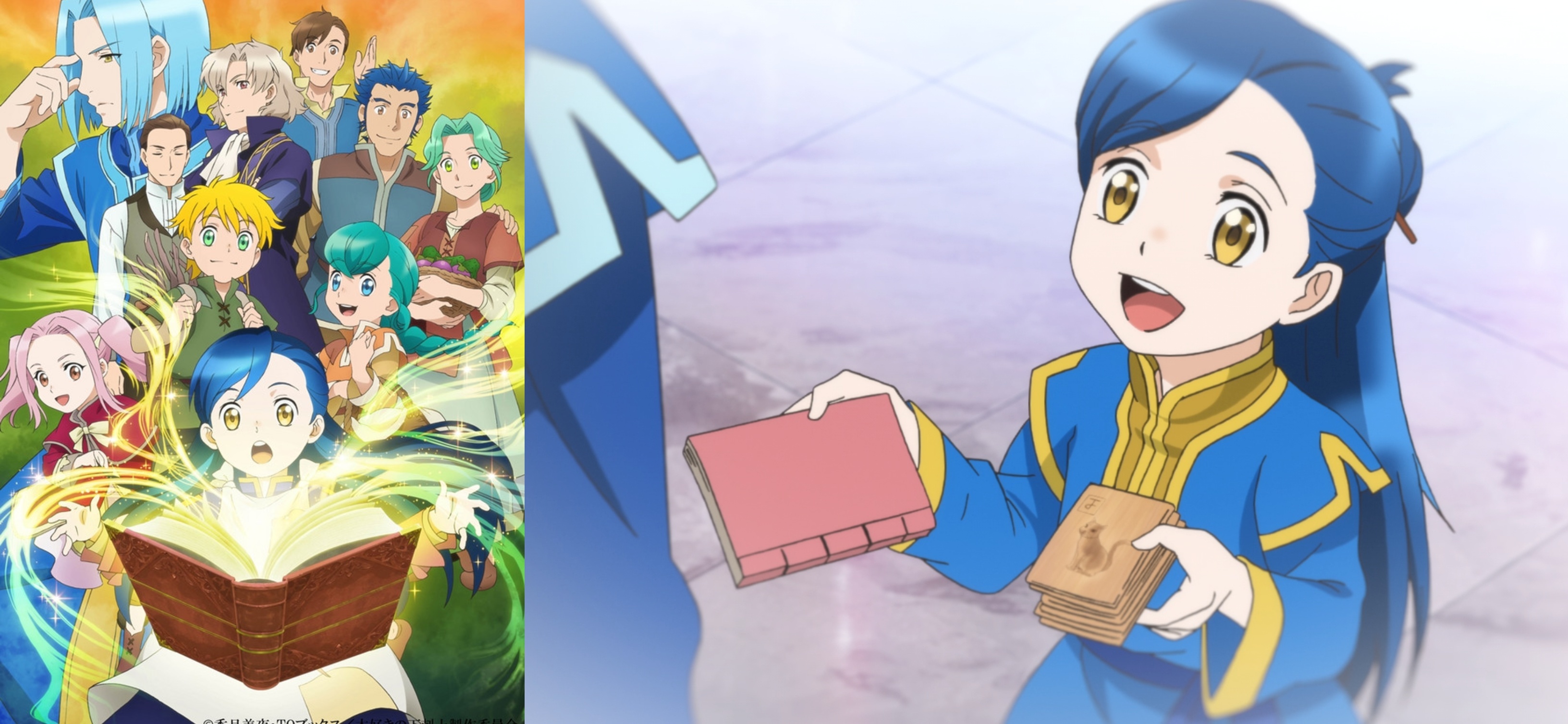
While seven prodigies solve the world's problems and a pro wrestler manages a pet shop, Motosu Urano (hereby referred to as her new identity, Maine) just wants to read books. Much to her misfortune, she finds herself reincarnated into a medieval fantasy world where books are rare and expensive, which is quite the enticing concept. When compared with other anime of its genre, Honzuki no Gekokujou manages to avoid the typical pitfalls in its initial setup — there isn't any long-winded exposition, distracting fanservice, or painful stereotypes. It also features a female main character that gets reincarnated into a younger girl's body, rather than the standard teenage guy that gets transmigrated as himself.
However, the show isn't able to escape from the "dumbfounded main character" trope, which is only made worse by the fact the main character is meant to be a massive bookworm. Reading a lot of books doesn't automatically make you intelligent, but Maine proclaims her love of history books among many other non-fiction genres, so she should probably know better in her new setting. That being said, the setting is strongly established in the first episode, which notes the rancid scents and class divide present in everyday medieval life.
Unfortunately, the first episode is also tediously uneventful, or rather, the events that do take up the 24-minute runtime are mostly mundane. I imagine this will likely drive off some viewers who don't have the patience I think this series will require to enjoy. It's also hard to say at this point whether this series will be quintessential isekai for booklovers as I believe Outbreak Company is for keen fans of Japanese popular culture. Time will tell.
Summary: Honzuki no Gekokujou is a breath of fresh air for the isekai genre in many ways, but its niche concept and mellow pacing won't be for everyone.
Hoshiai no Sora ⭐4.5/5
Shymander
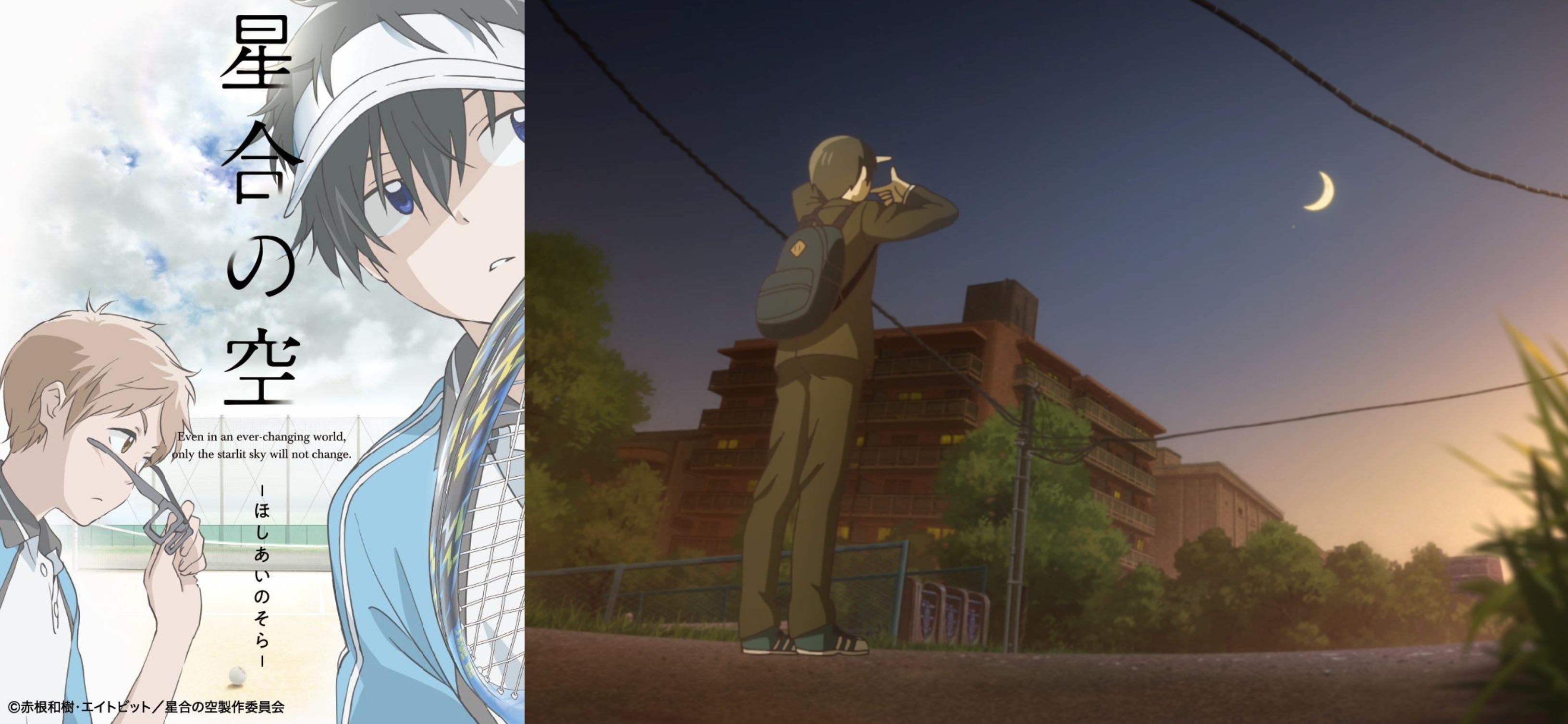
Although I'm a big fan of the Tennis no Ouji-sama manga and have reread it multiple times, I've yet to get around to the anime adaptation, so this is my first foray into the portrayal of tennis in a sports anime. I did have to Google the different between Hoshiai no Sora's soft tennis and regular tennis, though.
In most sports anime with a school club setting, the focus is on either or shared between soon-to-graduate third-years and energetic first-years with a lot to prove. With zero seniors and no new members, the soft tennis club in Hoshiai no Sora is all about that awkward middle group fighting against the odds to not be disbanded, which is intriguing enough in itself. Aside from that, the show gives off some pretty genre-standard vibes. Maki is a transfer student with great reflexes and a keen interest in astronomy, while Toma, who's desperate to save the boys' soft tennis club, pursues him until he agrees (for money). But with a stunning closing scene, Hoshiai no Sora grabs you and says that it is going to be something so much more than that.
An unloving mother on one side and domestic abuse on the other? In my laidback sports anime? Damn. It's twists like these that justify my attempts to go into new shows completely dark, without watching promotional videos or reading detailed synopses. The scene was beautifully impactful because it made you rethink the entire episode in a brand new light, but it doesn't override the connection established with the boys' soft tennis club in dire straits. Adolescence and belong looks like it will be a key theme of Hoshiai no Sora in contrast to the desire to reach the top: the club is a rejection of the toxic idea that winning is everything, and it seems to be an important place for Toma (and Maki soon) away from his seemingly troubled home life.
The simple art style leads into that initial illusion of ordinariness with visibly plain character designs, but by no means are the visuals completely generic. Every character has distinct physical mannerisms that emphasise their personalities and embody their reactions, particularly in the practice match scene at the beginning and the conversation between Maki and Toma at the end. These character moments feel infinitely more dynamic and thus have a stronger presence despite deceptively simple designs.
Summary: Hoshiai no Sora has the appearance of a typical sports anime and plays that part well, but deep emotional undertones paired with detailed animation elevate it to a must-watch character drama this season.
Houkago Saikoro Club ⭐2.5/5
Shymander
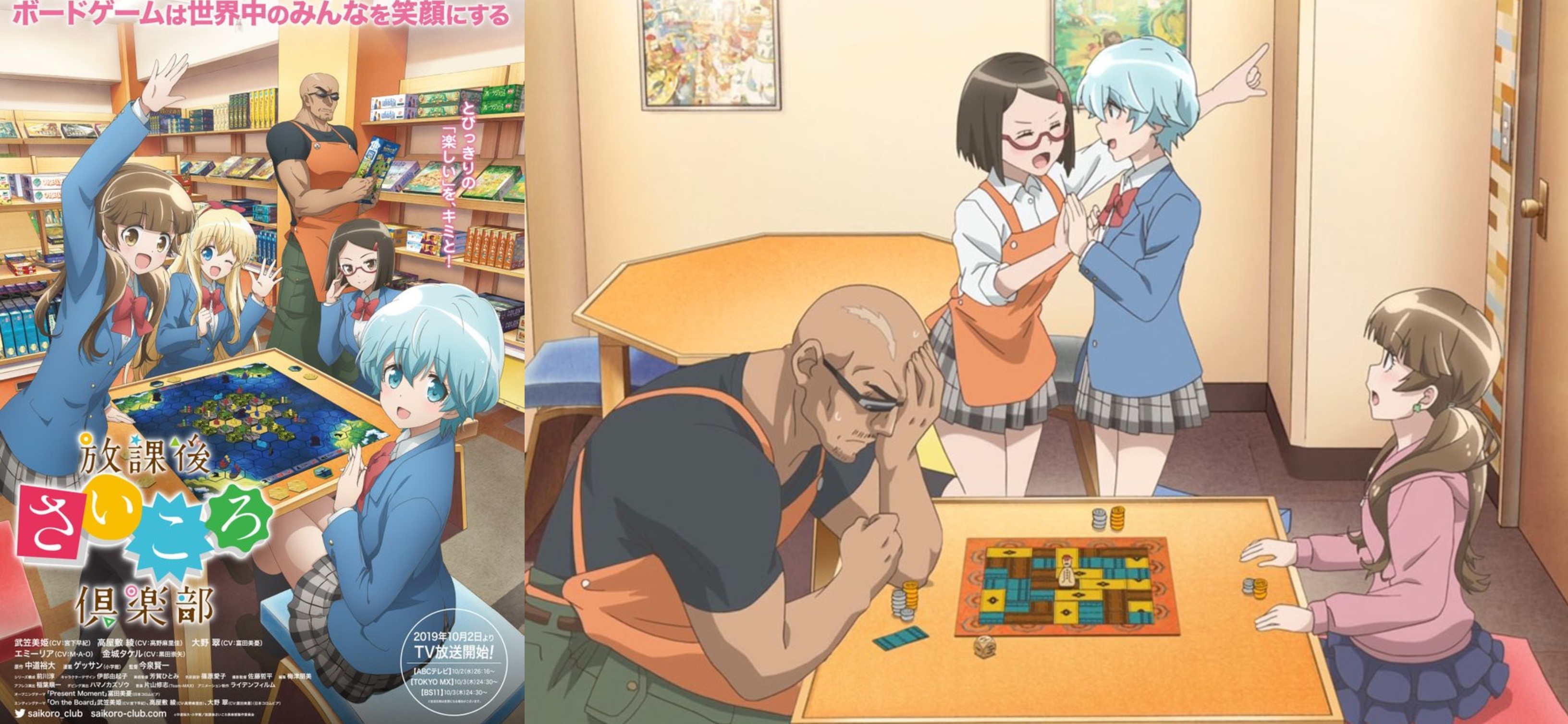
Going by appearances, I interpreted Houkago Saikoro Club as a short-form CGDCT (cute girls doing cute things) anime with a simple "board game of the week" format, so at first, I was rather thrown off by the whimsical, poignant tone a show supposedly about a board game club was taking from the get-go. The line "I couldn't really figure out what I find to be 'fun'" says it all. There's still CGDCT and there's still a "board game of the week," but one side is certainly more interesting than the other.
As someone who grew up on board games, I was greatly appreciative of and completely entranced by the unexpected level of detail put into every single board game — I was particularly ecstatic to spot Ticket to Ride and Codenames in the background. Personal connection aside, the amount of detail put into the board game props and their actual gameplay is definitely the show's greatest strength, albeit with narrow appeal. However, given the show's evident pacing, games with slightly more complex rules and longer play times will no doubt be cut disappointingly short.
Sadly, once I took off the rose-tinted glasses of nostalgia, I found a few other little issues to pick at. By no means is it a bad show or a bad premiere, but it's so close to something greater that it's almost irritating. The three main girls we're introduced to are run-of-the-mill slice-of-life characters: Miki has some social anxiety, Aya is a ball of positivity, and Midori is the smart class representative. They interact with each other well enough but lack individual appeal to really support the CGDCT element.
Summary: Board game lovers or simply those interested in finding good board games to play will find some amusement in Houkago Saikoro Club, but it will ultimately be a mild slice of life for anyone else.
Kabukichou Sherlock ⭐2/5
Shymander
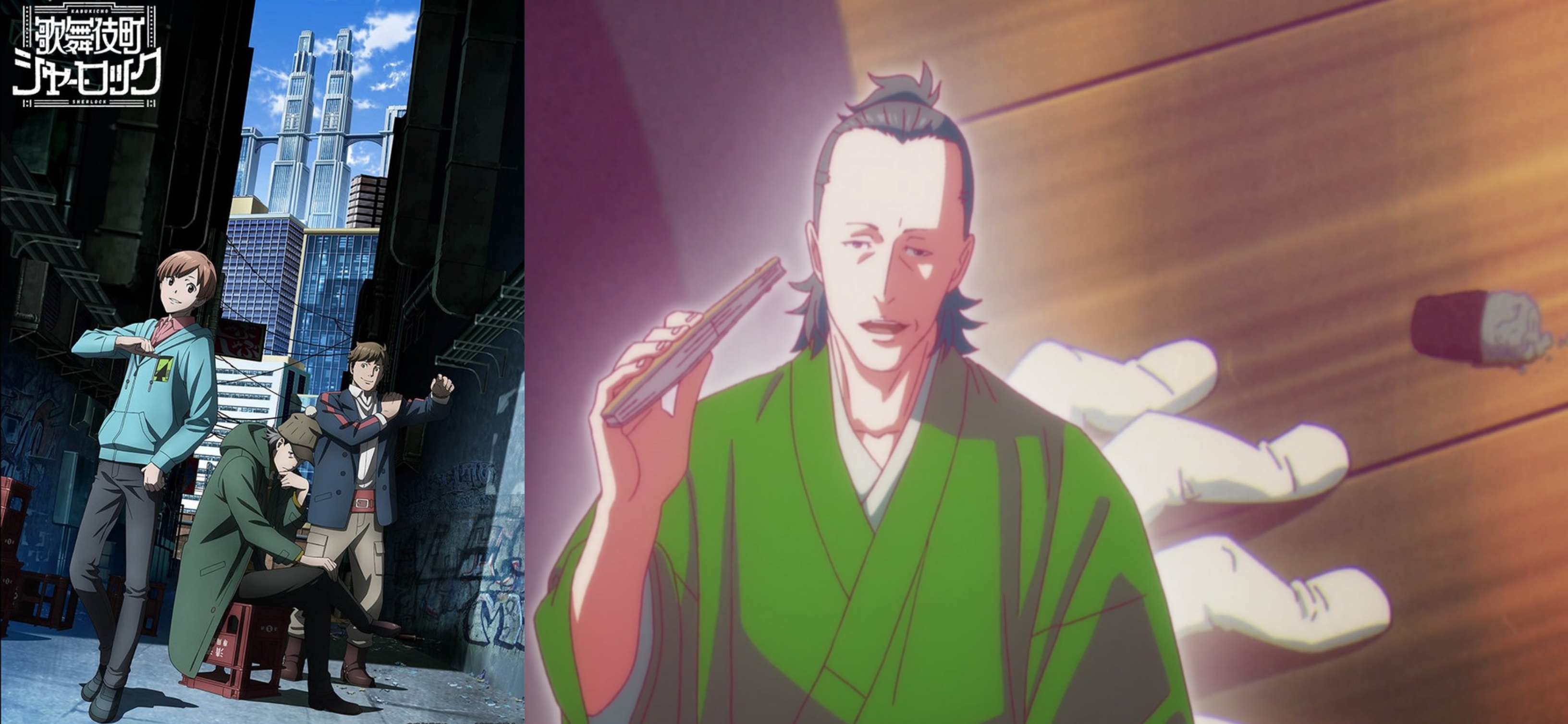
As the current synopsis states, "The story begins when certain bizarre murder happens one night! Suspense? Or Comedy? Drama that cannot identify begins!" — I envisioned the comedy to just be the amusing character banter seen in almost all modern iterations of Sherlock Holmes, paired with the usual serious undertones of an urban mystery. However, what I got instead was a distasteful comedy wearing a tattered layer of mystery that I had to grimace my way through.
Considering my interest in Sherlock-related media, I was rather disappointed at first. The initial introduction of each character, from John Watson to Jack the Ripper, seemed like they just slapped on well-known detective-story names without any regard for their namesakes. I did, however, mildly enjoy the take on Sherlock Holmes himself. He expresses his thoughts and deductions in the form of amatuer rakugo, which does line up with the original character's brash personality and odd mannerisms. But at the same time, he's a dysfunctional wimp that hardly seems like a genius detective, and his antics come across as cringey rather than intricate. Watson first meets with Sherlock to persistently ask him for help on a case, but whatever issue he had is quickly disregarded and left unanswered as the first episode rushes through its setup to deliver a case conclusion out of nowhere.
I wouldn't mind a mystery comedy series and I could forgive the misuse of character naming if the first episode's humour wasn't so unfunny and out-of-place. Some people may find it amusing, but clumsily climbing all over a dead woman who's been mutilated and helping a severely injured person to urinate just aren't in my tastes, especially when the show is trying hard to be serious about it at the same time.
Summary: You're better off watching any other Sherlock Holmes reinvention (even Elementary) than this inconsistent mess of distasteful comedy and unappealing characters.
Kandagawa Jet Girls ⭐1.5/5
Congress
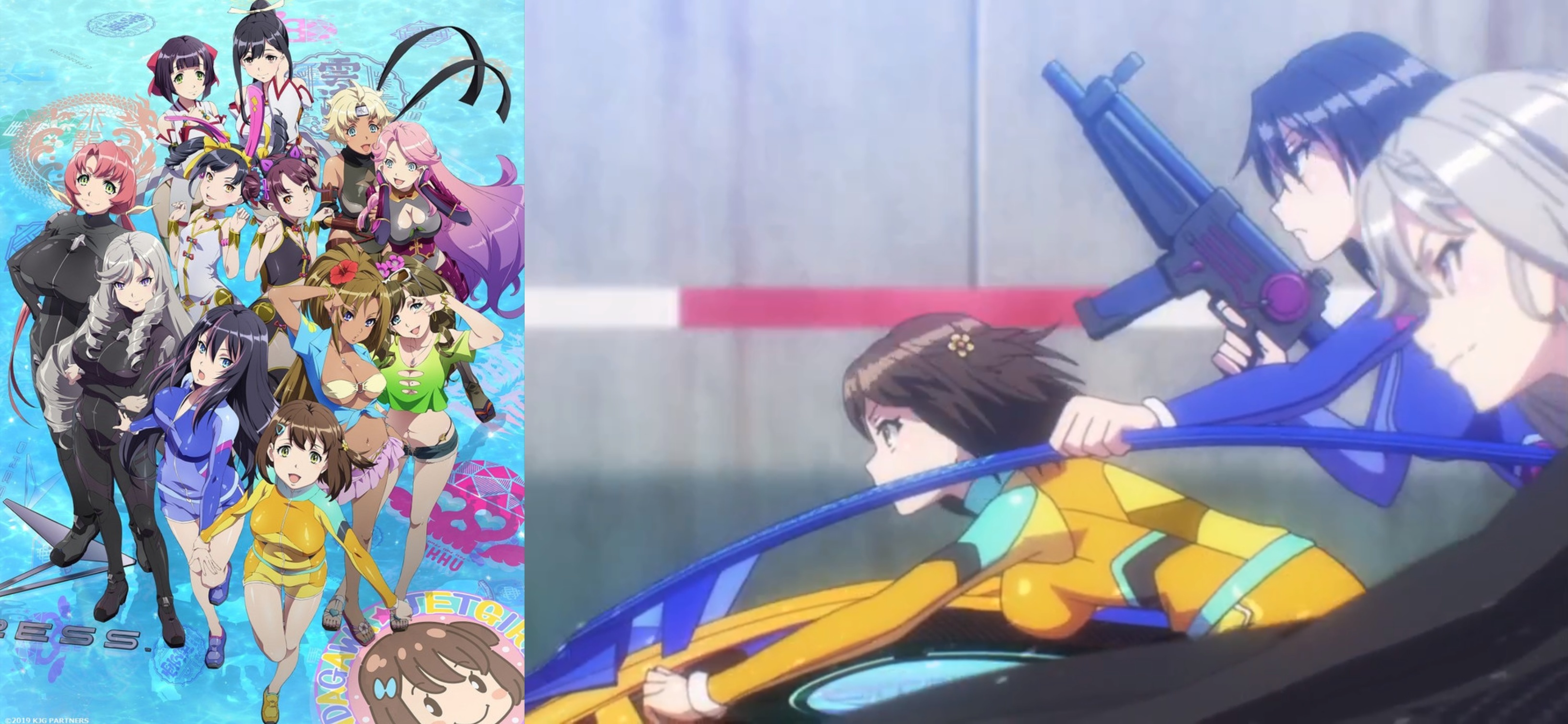
Anyone who's spent any amount of time plugged into the anime industry should have had a pretty good idea of what kind of show Kandagawa Jet Girls was going to be. A jet ski racing anime with a cast of high school girls? No one would have faulted you for expecting it to be vapid and filled with moe. Anyone with half a brain would have anticipated the occasional spoonful of ecchi. But while the show is, in fact, vapid and, at times, cute, Kandagawa Jet Girls eschews the spoon as a measuring tool and decides to go for ecchi by the bucket.
For the first half of its premiere, Kandagawa Jet Girls was relatively innocuous. We are introduced to a pair of main characters, Namiki Rin and Misa Aoi, whose personalities are polar opposites. One is bright and bubbly, the other cold and reserved. However, both have a vested interest in "Jet Racing," and fate decides to bring them together through an amusing coincidence. It was cheery, suitably tropey, and enjoyable. So far, so good!
But as the premiere moved into its second half, things started to change. Strategically chosen (ahem) camera angles, used relatively sparingly in the first half, became more common in the second. There seemed to be a lot more focus on bouncy "plot" as well, and actual plotting took the backseat; Rin and Aoi are rapidly shoehorned into a race with students from a rival school, dramatic buildup and ironing out plot holes be damned, and when the race began, it took me far longer than it should have to fully process how the show had managed to get to that point at all. And ah, on the topic of the races—the girls ride their jet skis in pairs, one of them driving while the other one shoots (yes, they have guns). And when shots land, the piece of clothing that gets hit is "purged." It means exactly what you think it means, and it left me with one very big question on my mind: "why?" I mean, I'm pretty sure I know why, but it's such a groan-inducing addition that any attempt to explain the in-world reasoning behind it is only going to make things worse. Honestly, if they were going to go that route, why not just have the girls wear nothing but bikinis in the first place? Justify it with "lighter weight goes faster" or something LmFaO.
I really wish the creators had gone for a more wholesome approach to this show. Rin, in particular, is a very likable character, and her initial interactions with Aoi are really cute. The Jet Racing isn't bad at its core, either, and could have made for some truly high-octane sequences had it been presented without the stripping aspect as its central draw. I don't know. It's not as if an over-the-top ecchi sports anime simply can't work. See Keijo!!!!!!!! for reference. But where Keijo!!!!!!!! is built on its ecchi, where the characters are in on the joke and live and breathe the ecchi, Kandagawa Jet Girl's ecchi simply feels forced and unnecessary. And the result is... niche, to say the least.
Oh, and by the way. There's apparently an uncensored version of this show. Yes, the characters are still high school girls.
Summary: What could have been a decent sports anime premiere is brought down by ceaseless ecchi that feels forced and out-of-place. Kandagawa Jet Girls caters to a very specific crowd (you know who you are) at the cost of losing everyone else.
Keishichou Tokumubu Tokushu Kyouakuhan Taisakushitsu Dainanaka: Tokunana ⭐3/5
Shymander
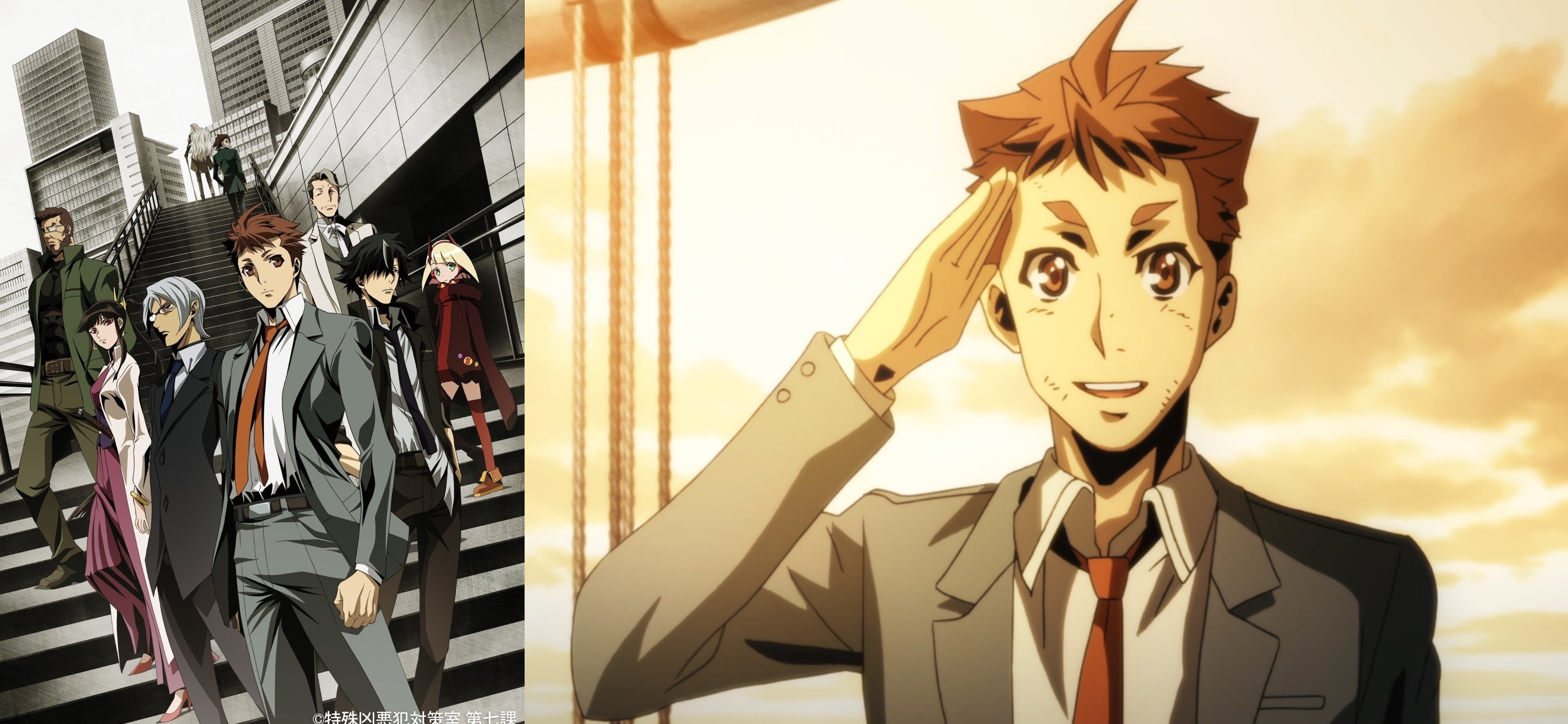
Gritty supernatural cop shows seem to be all the rage this year after last season's Cop Craft and Bem. Tokunana is very much in the same vein (it even has Kenjirou Tsuda as a main character and similarly jazzy music), but throws in some Mayonaka no Occult Koumuin for good measure, resulting in a decently fun mix of police action and entertaining characters.
The first episode follows the general format for shows centered around a special taskforce to a T. The bubbly justice-driven police officer (Seiji) gets caught up in a robbery, he's desperate to act but gets stopped by someone from said taskforce, they get through it due to the main character's noble actions, and then he's invited to join the taskforce. The existing members are a mix of quirky humans and supernatural beings, including a dwarf, an elf, and a vampire. The synopsis describes a fascinating urban city where these things are commonplace… but aside from a few choice shots of fangs and pointy ears, it all seems entirely normal, especially with the skyline that consists of the same grey building all the way through. Even the crime that Seiji gets caught up in was completely human, when it could've been infinitely more interesting with a magical twist. Last season's Cop Craft did an excellent job of presenting the supernatural parts of the world from the get-go by immediately throwing the audience into a supernatural crime, which made the police work and setting all the more engaging.
The opening and closing scenes tease some interesting developments and mysteries later on, so I'm rather optimistic going forward.
Summary: Keishichou Tokumubu Tokushu Kyouakuhan Taisakushitsu Dainanaka: Tokunana's first episode effectively introduces the main characters and the misfit supporting cast without having too many new personalities to process, but doesn't generate the kind of enthralling intrigue that its premise should have to grab viewers from its premiere.
Mairimashita! Iruma-kun ⭐4.5/5
Congress
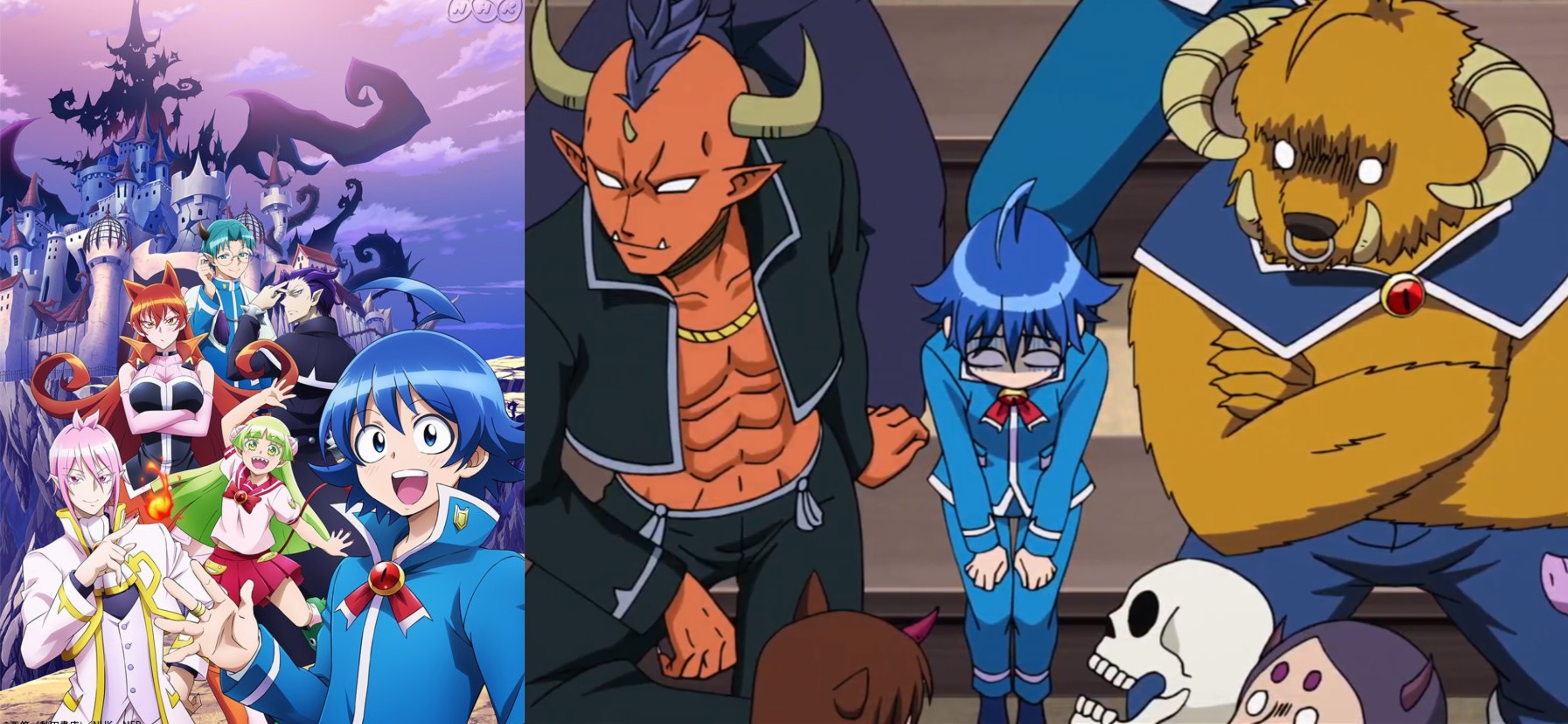
Mairimashita! Iruma-kun's premiere was one of the last two I watched this season, and the experience was akin to sitting down with a big cup of bubble tea after a hard day's work. It's pleasant, sweet, and familiar, helping me destress in a wholesome way that no other show this season could have accomplished. Amidst all the isekai, dark dramas, and garbage ecchi, this "throwback" show of sorts provided a comfortable change of pace that I really, really needed. In other words... I really enjoyed this premiere, guys.
On the surface, Mairimashita! Iruma-kun doesn't look all that extraordinary. And to be honest, it doesn't look all that extraordinary under the surface, either. However, all the various pieces of this premiere are brought together in such a sincere and loving way that I couldn't help but have a huge grin on my face almost the entire time I spent with it. It's just plain fun, through and through, and it's all done in an innocent and inoffensive way that I feel I haven't seen in quite some time. In some sense, this show brought out the child in me again. There's no need for perverted jokes or annoying antics here—Mairimashita! Iruma-kun relies solely on kid-friendly goofiness, quirky characters, and good comedic timing to bring out the laughs. And the result was an absolute joy to watch.
Is this show for everyone? Well, probably not. If it's bubbly jokes don't fit your sense of humor, and if the show's cutesiness doesn't charm you (but how could it not?), you'll be better off skipping this one entirely. However, for me at least, Mairimashita! Iruma-kun was incredibly easy to like. It doesn't bring anything new to the table—in fact, it feels like a "blast from the past" at times, like the kind of show you used to wake up on Saturday mornings to watch with your mom—but I think it's going to remain near the top of my "most enjoyable anime" list for some time to come.
Summary: A charming and wholesome shounen comedy with silly gags and lovable characters. It's simple, to be sure, but it's definitely my favorite premiere this season. Not every show can keep me smiling for twenty consecutive minutes.
Mugen no Juunin: Immortal ⭐4/5
Shymander
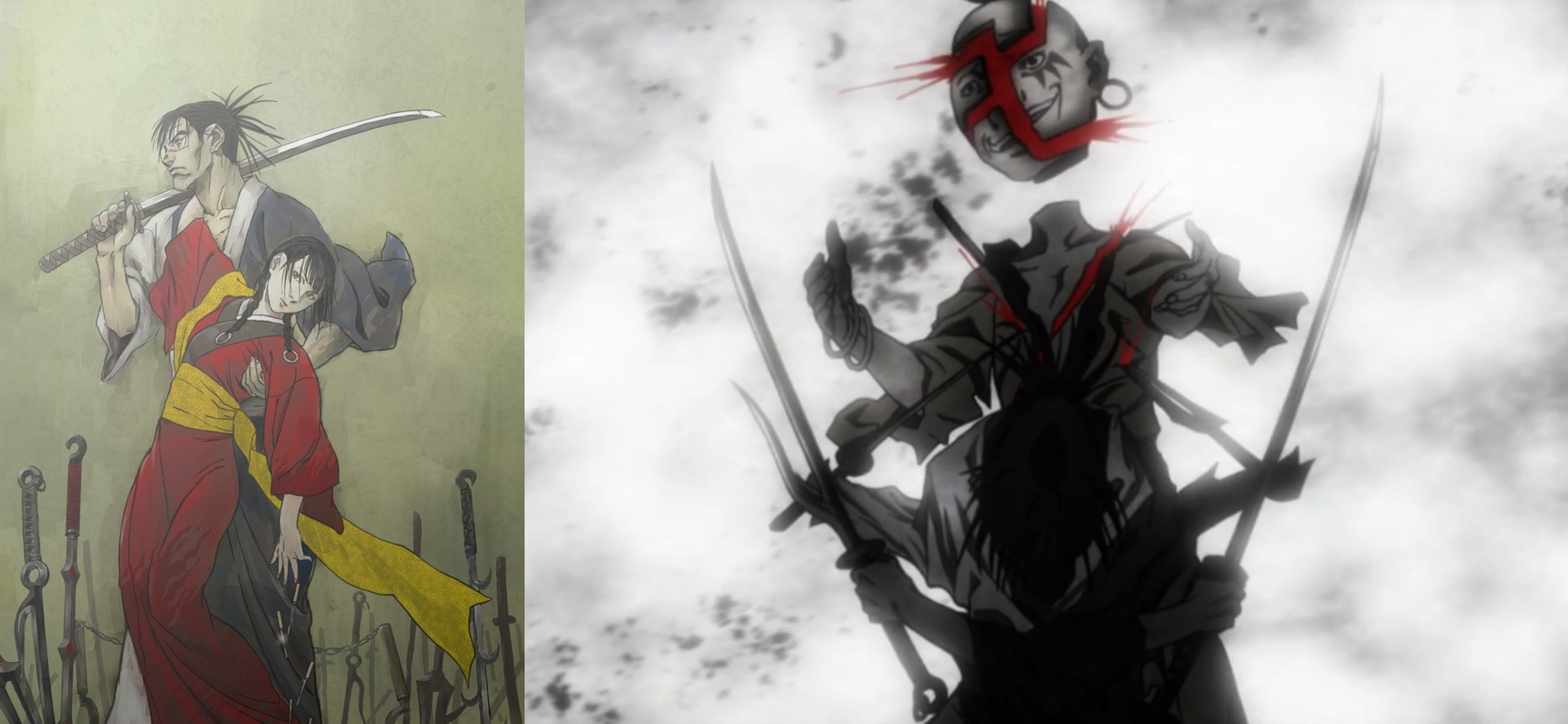
Earlier this year, Dororo reawakened a long-forgotten fascination with samurai and feudal-era stories within me, so it almost seemed like fate that Mugen no Juunin: Immortal would come out in the same year and on the same streaming platform. It even has a similar revenge-story plotline, and a much-celebrated one to boot. But compared to Mugen no Juunin: Immortal's visceral execution, Dororo is more like a tame shounen adventure — if you're into high-octane action scenes depicting graphic violence, then this is a must-watch.
Mugen no Juunin: Immortal is about as arthouse-y in style as you can get for a mainstream TV anime. The first episode contains blood and gore heavily contrasted against black-and-white tones, shaky live footage complemented by static, and a central recurring piece of poignant imagery (in this case, a water wheel). Every element comes together to create a consistently uneasy atmosphere that envelops the feudal setting; every moment is filled with palpable tension due to either no background sound at all or a low hum with infrequent drum beats, all paired with jarring angles and unnerving flashes. What stood out to me the most, however, was the detailed use of shadows over characters — in particular, how it brought out the delicateness of Rin's pale skin in the eerie moonlight and how it made the reveal of Sabato Kuroi's "companions" dynamic and even more heinous. There's a distinct lack of animation in some action sequences, but the pictorial quality more than makes up for it.
But behind all the well-crafted directorial work, there's a compelling character dynamic fueling this decades-old story: two broken souls who find each other through revenge and become bound by blood; one cannot die and one cannot bear to live. The persistent imagery of the turning water wheel (which now haunts my dreams) perfectly captures their predicament and the endless cycle of violence that will continue to turn as long as blood flows through it.
Finally, I can't help but feel the need to point out how big of a year this has been for Kenjirou Tsuda: his iconic voice has popped up everywhere from police shows to isekai across every season in 2019. It's not too surprising to see him here since his typical typecast matches the disgruntled father figure vibes of Manji, but his performance is on point in that regard.
Summary: Mugen no Juunin: Immortal delivers a gratifying experience both visually and thematically, especially if you're seeking a more intense follow-up to Dororo.
No Guns Life ⭐3/5
Congress
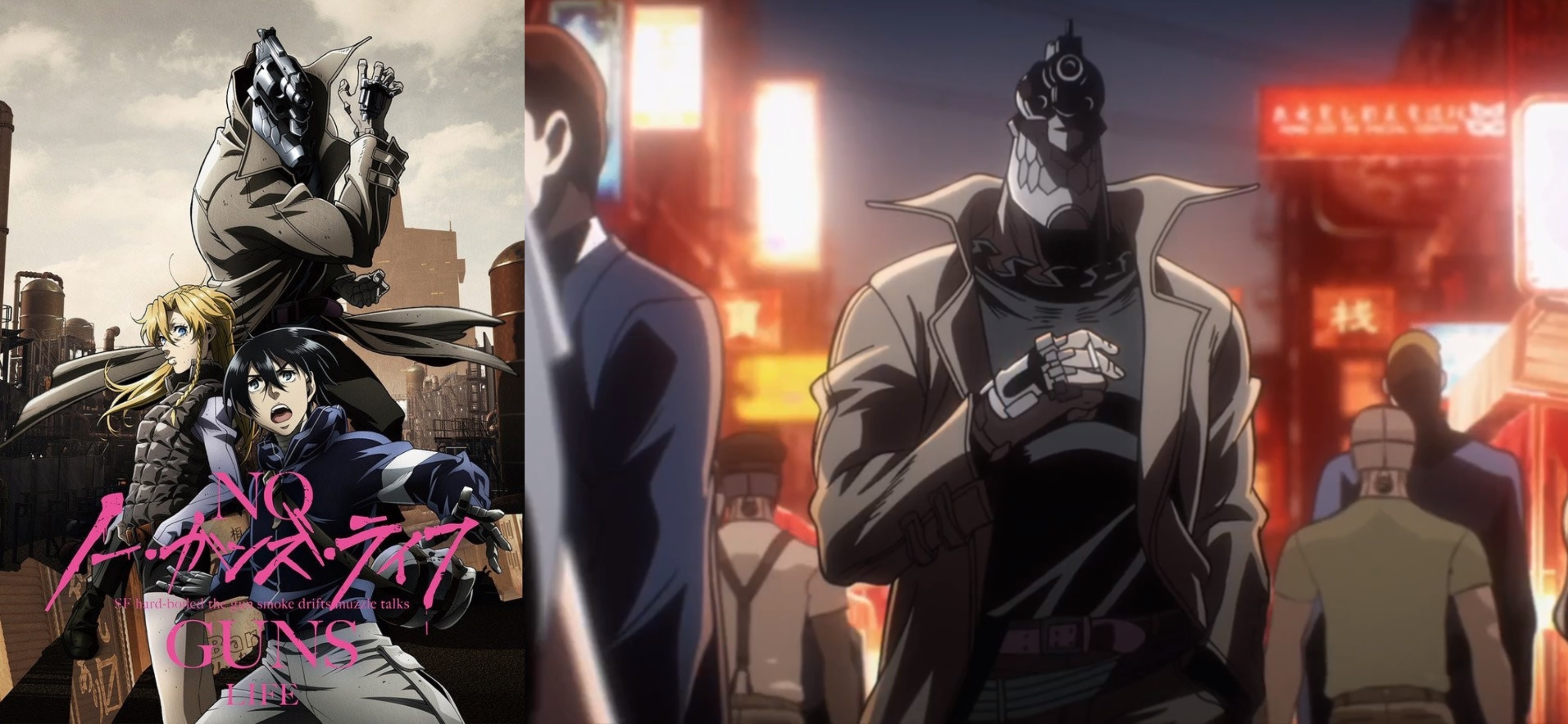
As far as genres go, cyberpunk is one of those that virtually never fails to grab my attention. There's just something about the juxtaposition of gritty low life and sleek high life that I find oh so appealing, and the very nature of the setting offers so much room for introspection. Give me an anime that channels some of the same aesthetic energy as the original Ghost in the Shell, then, with some "jazz noir" sprinkled on top, crowned with a hecka interesting-looking main character to boot... and yeah, I'm in.
"H-His head's a gun?" This line, spoken by a freaked out mother, succinctly sums up the main shtick of No Guns Life. Juuzo Inui is a man who literally has a giant gun for a head. He is a cyborg (the in-world term is "Extended"), originally engineered to act as a weapon of war, and he now makes a living taking on peacekeeping jobs in the story's post-war metropolis. Juuzo's design is definitely strange and possibly cheesy at first glance. Surprisingly, however, it didn't feel awkward at all during my viewing of the premiere. It's justified by the story, and it's like a "so bad it's good" or "so lame it's funny" situation—here, it's "so stupid it's cool." Rule of Cool in action.
But while Juuzo's appearance is eye-catching, the story he's involved in doesn't stand out quite as much. Conceptually, it's nothing new in the genre—a powerful and corrupt corporate entity called Berühren Corp is conducting extremely unethical experiments, and Juuzo finds himself pulled into the mess after encountering one of Berühren's victims.
It's compelling enough on paper, but in practice, it came off as... a little emotionally dulled? I'm by no means a professional writer, but I feel like the premiere started too far into the story. In my opinion, this is one of those tales that needs to give the audience a pretty good feel for the world before diving into the drama, because in cyberpunk especially, the world is as much a character as the actual characters themselves. However, we're only ever introduced to three identifiable locations: Juuzo's apartment, a bar run by one of Juuzo's acquaintances, and a giant Berühren tower in what appears to be the center of the city. As a result, there simply wasn't a very strong sense of setting. This, combined with the fact that we never really get to see what Juuzo's day-to-day looked like before the events of the premiere, means that I found it difficult to feel very invested in what was happening. The events depicted in the premiere are clearly supposed to be abnormal, but because we are never really shown "normal," much of the show's drama or action landed with less impact than it could have.
Still, what we've seen of the story in the premiere has left me intrigued, and I definitely want to find out more about our gun-headed hero and his apparently somber past. Hopefully, as more of the world is revealed and characterized in future episodes, the story will become more alive as well.
Summary: The first episode of this cyberpunk noir focuses, to its detriment, more on advancing plot than building a world that the audience can truly get invested in. However, the interesting story points and characters we've been introduced to so far are intriguing enough to warrant giving further episodes a chance.
Null Peta ⭐2.5/5
Congress
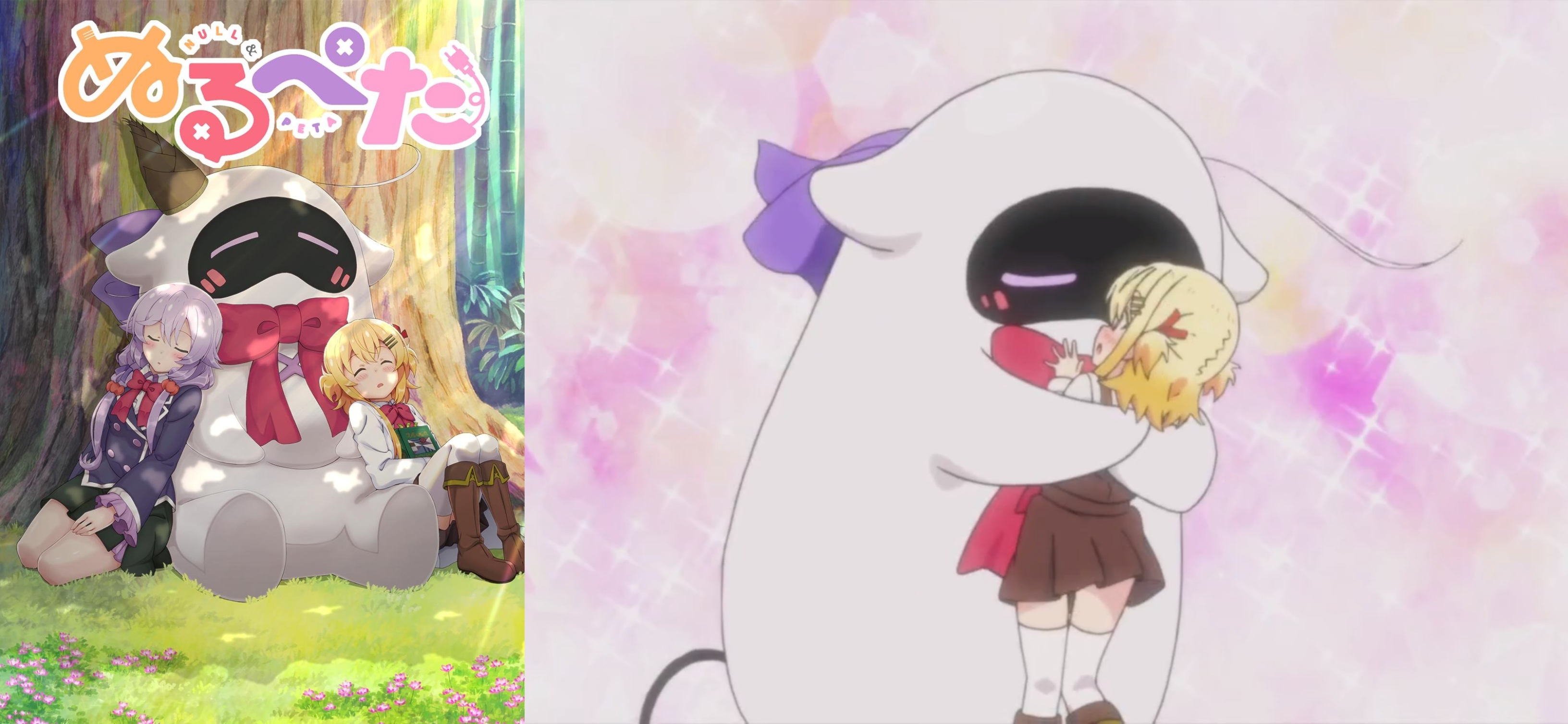
There's not that much for me to say here. After all, the short, five-minute premiere itself didn't manage to say much either... But the setup basically goes like this: cute inventor girl creates a robot that has the same personality as her deceased sister. The two troll around for a bit before rocketing off into the sky, flying over Africa and Antarctica on their way to inventor girl's school. And yeah, that was the premiere.
It's very cute, to be sure. The robot's character design is adorable, and the fact that it gives off Baymax vibes definitely doesn't hurt. The sad and wistful feeling underpinning the on-screen shenanigans also gave the premiere a certain level of depth that it wouldn't have had otherwise.
I suppose there's no reason not to watch more. So far, the show isn't good or bad, having failed to make me feel strongly about it one way or another. The premiere also felt like an incomplete episode, so I will likely watch at least one or two more to get a full introduction to the story. A slightly below-average experience, I guess.
Summary: Extremely fuwafuwa. Shallow and nebulous due to the limited five-minute runtime, meaning this premiere is unable to leave a strong impression. Nonetheless, it is well-produced enough that I'm looking forward to finding out more in the coming weeks.
Ore wo Suki nano wa Omae dake ka yo ⭐3.5/5
Shymander
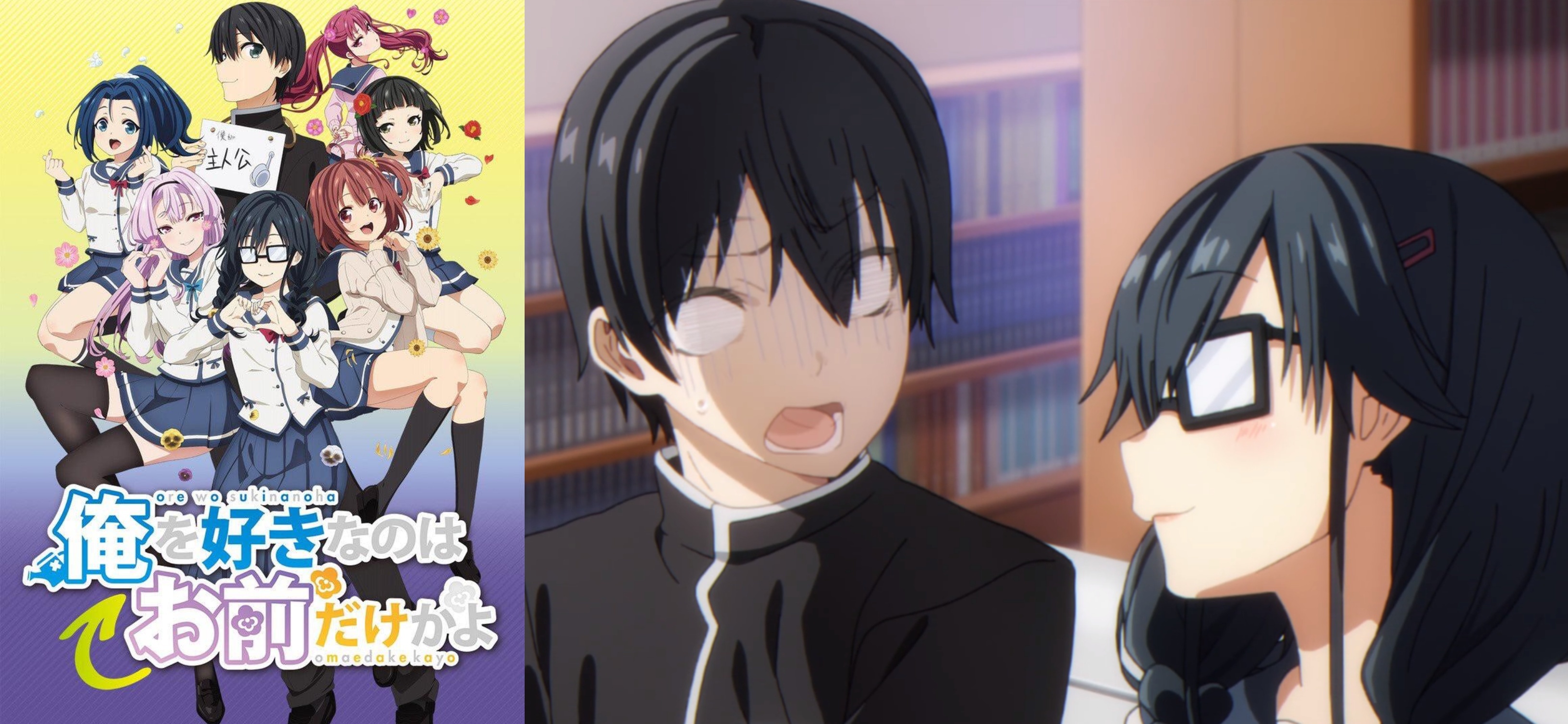
This… this is definitely going to be my guilty pleasure this season.
Despite having the appearance of a cliche school romcom, Oresuki turns the genre on its head with the story of two selfish friends and a two-faced protagonist. Joro comes across as a typical harem protagonist: easily aroused, oblivious, and completely unremarkable. But after misinterpreting his two friends' separate requests for help with confessing to his best friend as confessions to him, he brings out his malevolent side that throws his assumed archetype into a ditch (perhaps where it belongs). Even though he turns into a bit of a scheming bastard, you can't help but questionably empathise with him despite his misplaced reasoning. But just when Joro thinks he has the perfect plan to get back at them, his ~secret~ stalker admirer confesses her exploits and her love to him.
One thing I learnt from this episode is that I really am a sucker for Japanese characters reacting with foreign words out of nowhere; it was particularly funny in this episode since the delivery was always subtle and completely offbeat, such as the simple "What?" when the first "confession" from Cosmos is exposed for what it really is. I also laughed a bit too much at the "perked you right up" gag for the same reason. Despite only being on screen for a few minutes, I can already see Sumireko becoming a fan favourite this season with her casual yandere traits and dominating aura. Her bit at the end with the unmasked Joro promises plenty of comical banter in the episodes to come.
While the thematic and comedic material is some of the most entertaining this season so far, it's hard to ignore the roughly drawn character designs and hazy overlay that feel like I'm watching the whole show in 480p when it's in full high definition. However, the visual comedy still contributes to Oresuki's inherent humour, particularly through extreme facial expressions and tone shifts.
Summary: It's not the funniest show this season nor the prettiest, yet Oresuki is delightfully self-indulgent and invites you to indulge in its guilty pleasures as well.
Phantasy Star Online 2: Episode Oracle ⭐2/5
Congress
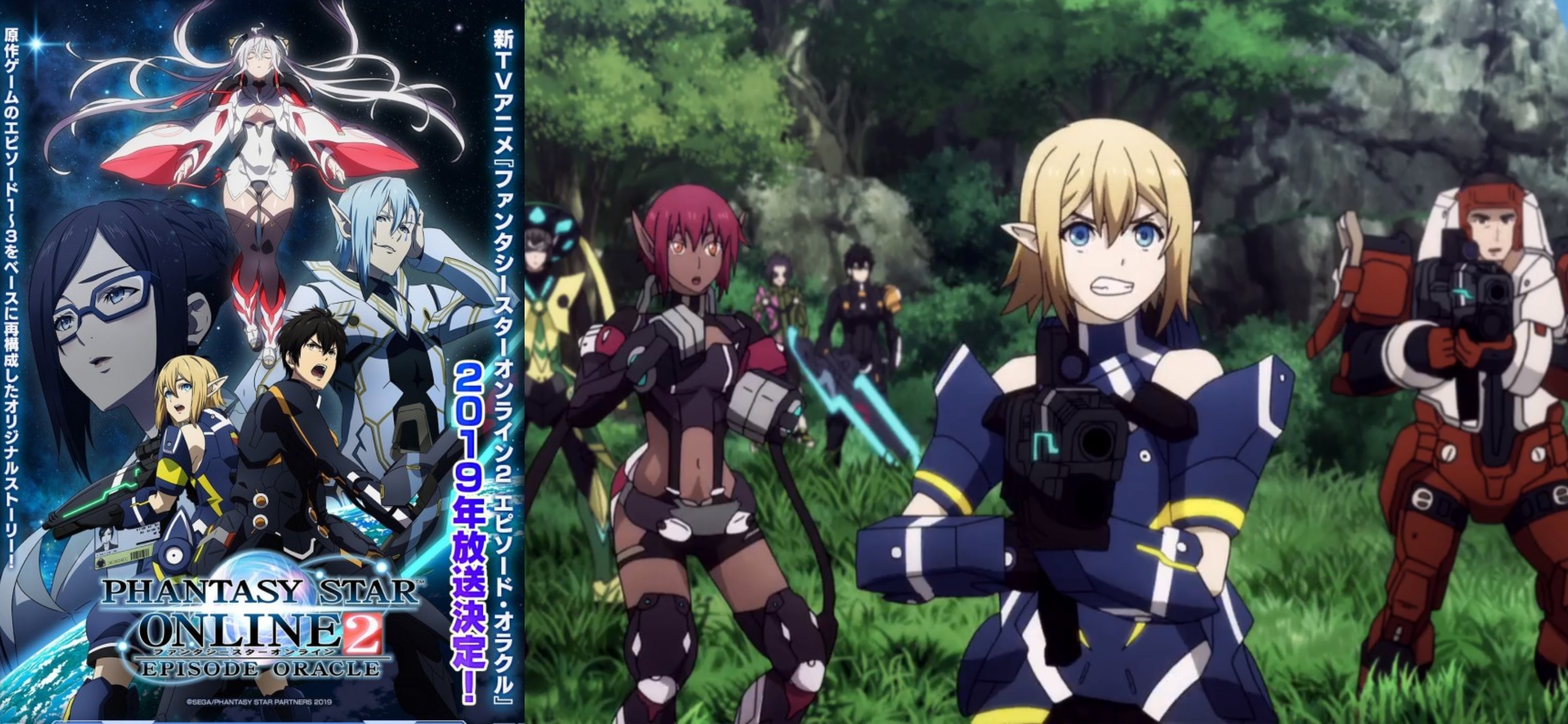
MMOs are one of my guilty pleasures, and during my oft-repeated quest to find a new game to sink my teeth into, Phantasy Star Online 2 would often come up on the "Top Ten MMOs" lists I encountered. As such, I've had a reasonable amount of interest in the game for a while—enough to get excited when a Western release was finally announced this year, but not enough that I know anything about its story or world beyond what's readily available on the surface. So to that end, Phantasy Star Online 2's anime adaptation has proved quite interesting to me, because it gives me a deeper look into a game I've been well aware of—but never able to play—for a good number of years.
Sadly, "interesting" does not always go hand in hand with "compelling." If you're looking for a grand space opera, as the spaceship-filled scene that comes in right after the OP might suggest this is, I have a feeling you're going to end up disappointed. The narrative scope of Phantasy Star Online 2: Episode Oracle is rather narrow thus far; the hero, Ash, is meant to represent a player's character, and the whole show is more or less an anime retelling of the game's own storyline. If you've played an MMO before, you'll know that they typically aren't known for the robustness of their stories. Here, it's the classic "chosen one" tale with a sudden unexpected enemy ambush and a mysterious girl who knows the hero's name randomly descending from the sky. It's nothing new, it's safe, and it does flow, but it's also told in a way that was really just bland.
And all this is delivered in a package that's littered with wonky animation and stunted CGI—no, Phantasy Star Online 2: Episode Oracle isn't shaping up to be a particularly high-quality sci-fi offering. Many of the designs are cool though, I'll give the show that. The city ships, some of the costumes, and some of the weapons, as awkward and impractical as they might be...
All in all, the show is competent, in the sense that it successfully does its job of telling me about the game. Like most other game-adapted anime, it's made for the chief purpose of promoting a different incarnation of itself that exists in a completely different medium. And that approach rarely, if ever, gives us anything that amounts to more than "watchable."
Summary: Phantasy Star Online 2: Episode Oracle adapts the story of the Phantasy Star Online 2 MMO, and it's about as good as you'd expect. Watching this premiere wasn't a terrible experience, but it's largely a forgettable one.
Rifle is Beautiful ⭐2/5
Congress
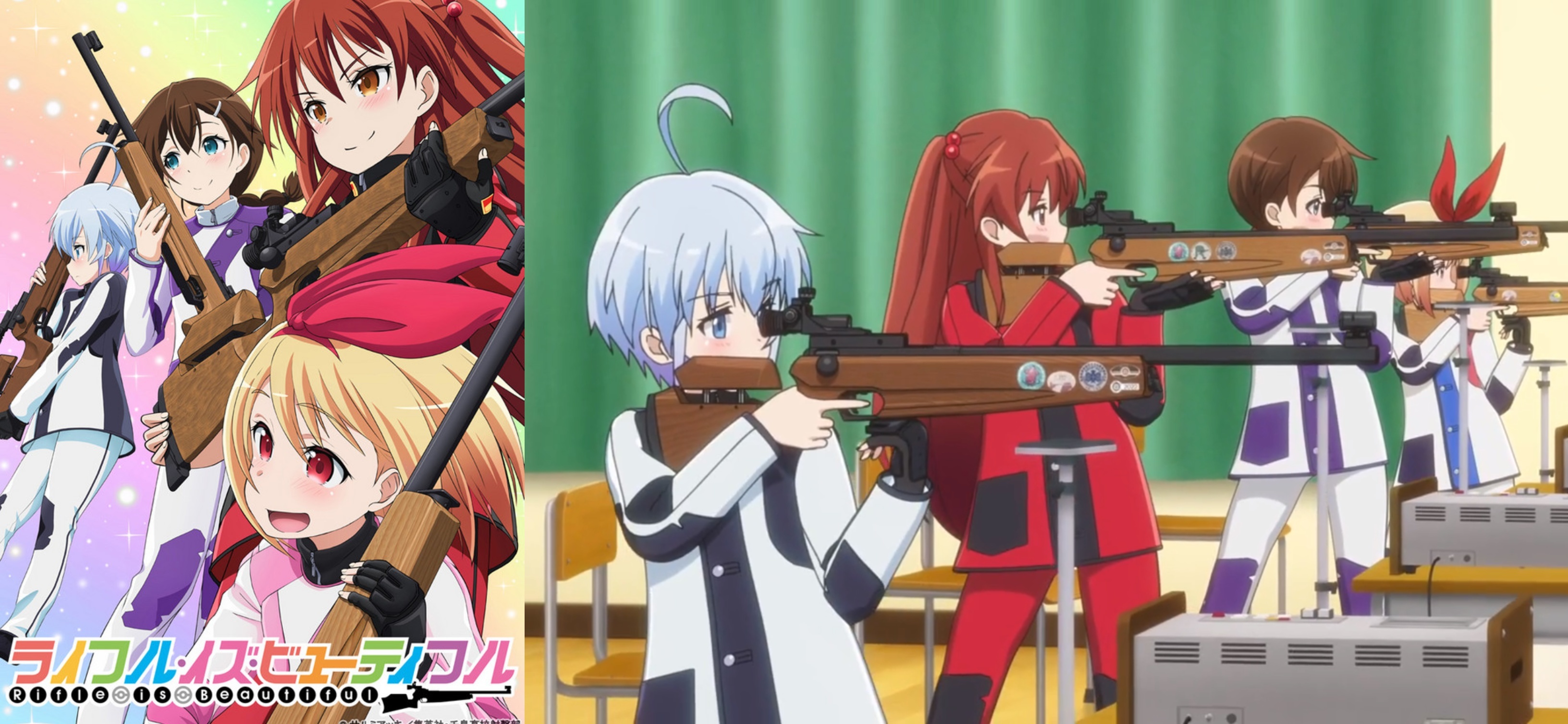
I've always had a weak spot for moe. I enjoy club sports anime. I like guns. As such, a moe club sports show with guns (real or not) should have been right up my alley. Indeed, I went in fancying myself a member of the show's target demographic, so it is with a heavy heart that I say Rifle is Beautiful's premiere simply wasn't very good. Yes, it delivers in the moe department; the characters and art style are colorful and cute, and pretty much everything that happens during the premiere can be accurately described with the word "fluffy." However—and this is my core issue with the show—the club sport the story centers around is extremely questionable, resembling a carnival attraction more than something truly interesting or competitive.
Understandably, the show doesn't feature real guns. Unlike the United States, Japan doesn't have more firearms than people, and those who wish to own a gun in Japan, even for sport shooting, have to go through a notoriously lengthy and difficult process. But why the girls are given glorified laser pointers as the alternative is something I don't understand. Normal sport shooting with real bullets, in my opinion, is already one of the least entertaining of all sports to watch. Change the bullets to lasers, and even more of the dynamism is taken out of the picture. The triggers on the laser rifles depress extremely easily, and there's no need to account for wind, bullet drop, etc. when you're firing lasers.
I'm not saying it wouldn't be hard to shoot these laser rifles well, as the targets are tiny, and the shooter would still need to hold themselves very steady if they wish to be accurate. But does this sound interesting to watch? Someone controlling their breathing better and holding their rifle steadier than the competition? It certainly doesn't to me.
And as for the other aspects of the show... Yeah. Again, the characters are really cute. Their interactions are fluffy, and though they're all walking archetypes (because when are they ever not?) and haven't gotten that much fleshing out just yet, I'm sure there will be future episodes dedicated to exploring their backstories. The plot is also as innocuous as can be, efficiently moving through all the early story beats I would expect from a show like this.
I like the art. I like the character designs. I like the voice acting. The story structure doesn't underdeliver. I wanted to like this show. Unfortunately, Rifle is Beautiful is built around a central focus that I would argue was critically flawed and misguided from the very start, and the result is a regrettably boring experience. The concept may have worked well in the 4-koma manga this anime is adapted from, but I just don't see it working here. What a shame.
Summary: An otherwise decent moe club sports show that's greatly hindered by a sport that doesn't translate well from manga to anime. While the characters and their interactions are still reasonably entertaining, the overall package offered by Rifle is Beautiful's premiere is more boring than fun.
Shinchou Yuusha: Kono Yuusha ga Ore Tueee Kuse ni Shinchou Sugiru ⭐4/5
Congress
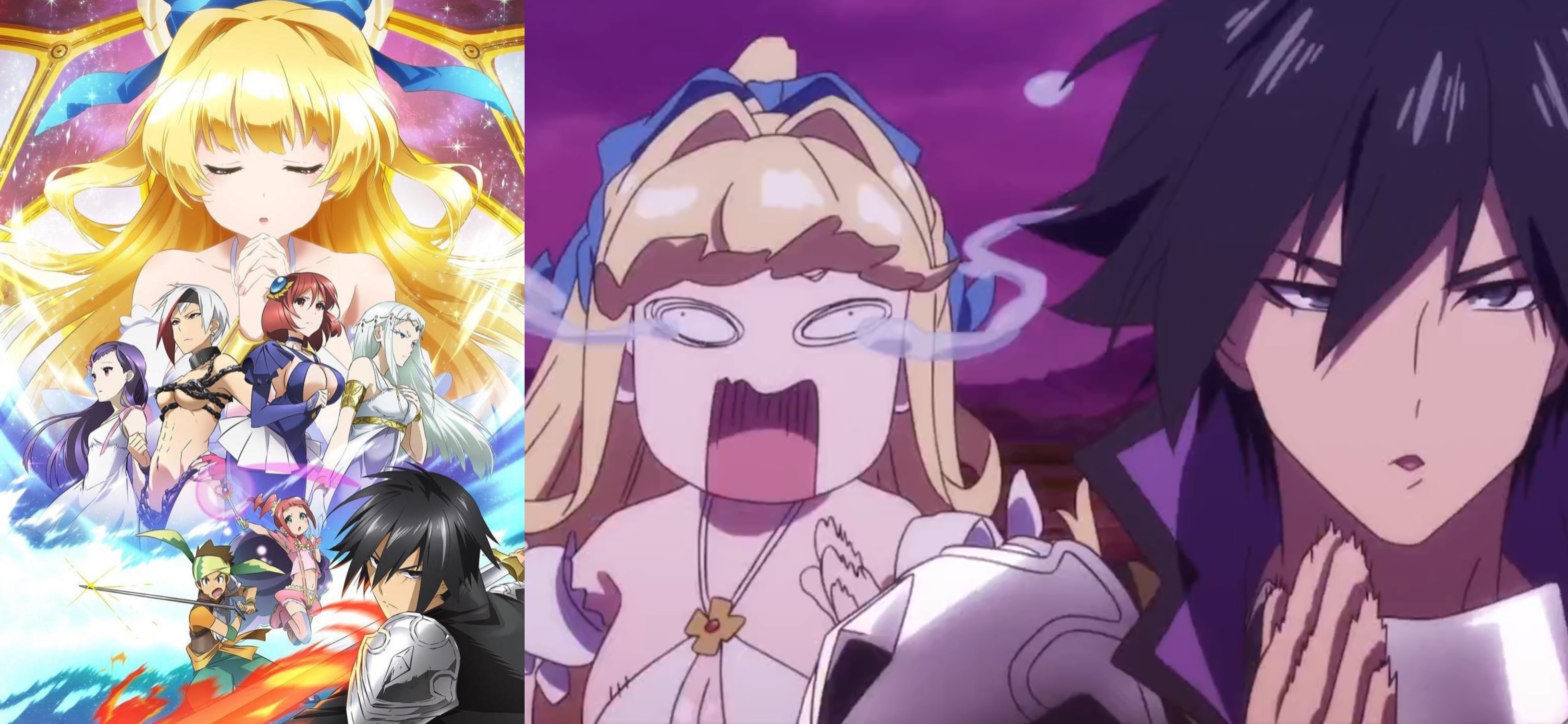
As the number of isekai anime continues to swell with every passing season, newcomers to the game—at least those that aspire to be more than just banal trope vomit—have to try harder and harder if they wish to stand out from the crowd. Thankfully, Shinchou Yuusha aims higher than the typical isekai garbage, and it attempts to be unique by making its hero, Seiya Ryuuguuin, in many ways the exact opposite of the average isekai MC. Instead of revelling in the idea of being a hero in another world, Seiya approaches his new lot in life with icy caution that borders on (or perhaps is) paranoia. Instead of jumping in headfirst when challenged by an opponent who is clearly stronger than him, and instead of counting on cheap tricks like "the power of strong feelings" and "plot armor" to win him the day, Seiya simply turns around and runs in the other direction as fast as his legs can carry him.
This change to the isekai formula, though simple on the surface, actually manages to accomplish quite a bit. Because Seiya isn't enthusiastic about the whole summoned hero thing, the standard opening sequence of summoning -> entering new world -> fighting first monster gets changed enough that it doesn't feel stale at all. And though Seiya is typical in the sense that he's overpowered, attractive, and angsty, his overly cautious nature makes his actions and motivations atypical, and thus rather unpredictable (at least for now). Yes, an unpredictable isekai hero. I didn't think it was possible, either.
One other thing that makes Shinchou Yuusha stand out from the rest is the point of view it's told from. Instead of following Seiya from the start, the audience is actually first acquainted with the goddess who summons him, Rista. The majority of the show's interior monologues come from her, and seeing the story unfold through her eyes and sharing in her exasperation at Seiya's antics is different and refreshing. It certainly doesn't hurt that her expressions are often extremely over the top—indeed, the humor in Shinchou Yuusha felt almost Spongebob-esque at times. It's brisk, kind of weird... and most importantly, it grabs on to your attention and never lets go. And though I wouldn't call the end result amazing or anything...
It's actually pretty good.
Summary: Shinchou Yuusha doesn't break much new ground, but its main characters—the overly cautious hero and the hilariously extra goddess who summoned him—are more than enough to give this show a leg up over the majority of its competition.
Stand My Heroes: Piece of Truth ⭐2/5
Congress
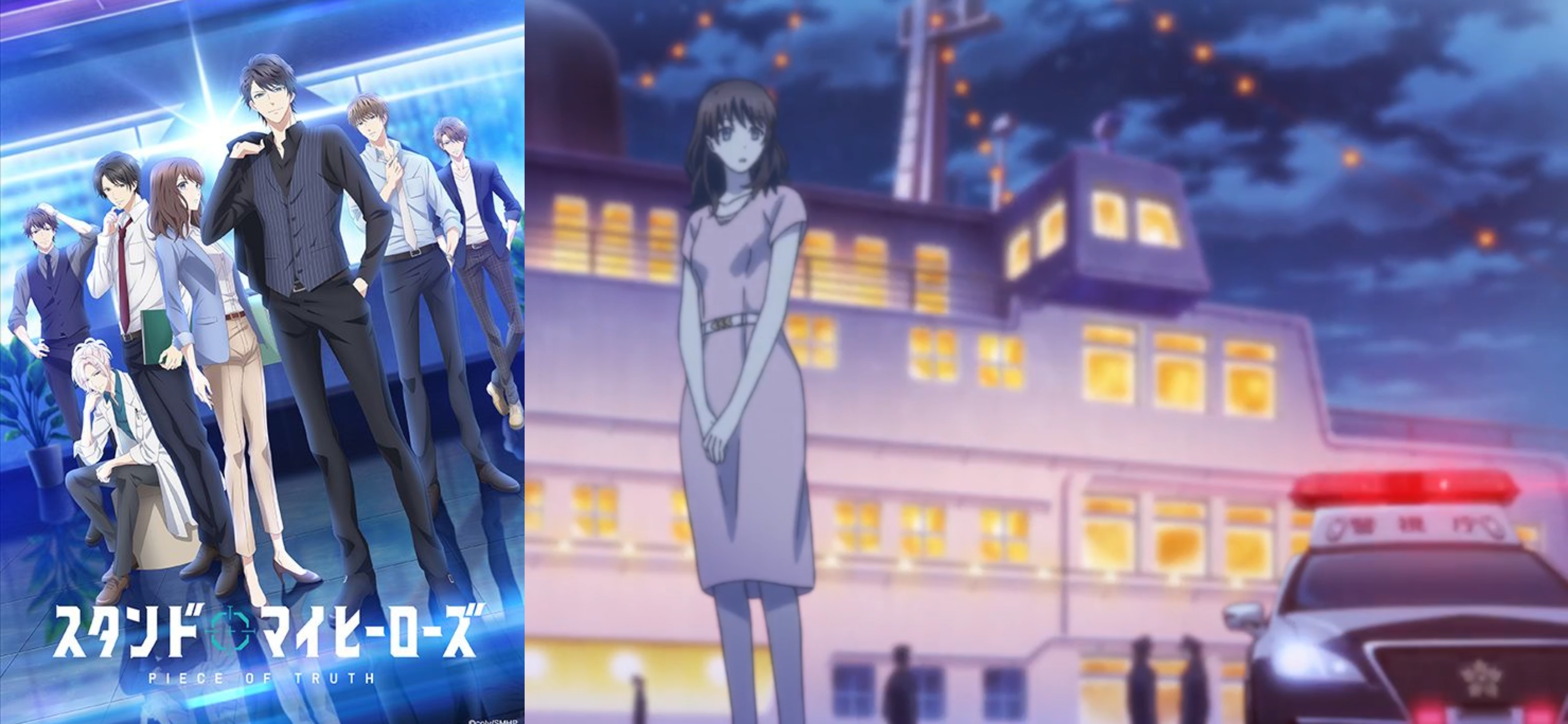
Stand My Heroes is a mobile game that combines puzzles with otome. Apparently, it's quite popular (at the time of writing, it was ranked #49 in the "simulation" category of the Japanese App Store), and a number of the positive reviews I read praised the game for its interesting characters and quality voice acting. But does it work well as an anime? As it turns out... no, not really.
The story so far goes like this: Rei Izumi, the heroine and audience self-insert, is unaffected by a number of drugs, including chloroform. As a result, she gets put on a new investigation agency called STAND that's been created to combat a rise in "unsolved drug-related cases," and she is tasked with recruiting potential members to the fledgling team. Now, I'm no biologist, chemist, or what have you, but I'm pretty sure it's not actually possible to be resistant to chloroform. Of course, as far as I can tell, this show isn't about being realistic or having a truly compelling story. All that really matters is the male love interests. To be fair, this is... fair. But it doesn't make for good TV.
Because I've never played the game and didn't have the luxury of already knowing who the characters were, the majority of the premiere was, to me, little more than a revolving door of similar-looking bishounens that I was never given enough time to develop even the smallest trace of interest or investment in. Stand My Heroes: Piece of Truth is actually very similar to Azur Lane (one of the other mobile game shows this season) in that regard. Both anime adaptations suffer from the fact that their source games' character rosters are simply way too big, and their characters are constantly competing with each other for screen time, resulting in a lose-lose situation all around. Do I remember even a single name? No. And if you asked me to describe, from memory, as many of the premiere's characters as possible, all I could manage is "the pink-haired guy with Takumi Aldini's voice actor," "the black-haired dad-type guy with Chamber's voice actor," and "the tsundere guy who's needlessly cold to the heroine but predictably starts to acknowledge her after he sees her earnestness in action." That's about it. Everyone else was exceedingly forgettable.
Stand My Heroes: Piece of Truth isn't horrific. For what it's worth, the all-star cast of voice actors —which includes big names like Tomokazu Sugita and Yuki Kaji—definitely sounds all-star as hell. But if you've never played the Stand My Heroes mobile game before, and aren't one of the fans that this fanservice anime is clearly aimed at, watching this show is probably going to be a total waste of your time. Unlike Azur Lane, this one doesn't even have above-average animation or engaging action to keep a non-fan entertained.
Summary: An all-star cast of voice actors is not able to save this otome fanservice anime from a wispy plot and a cast that's too big for the average viewer to remember, let alone grow to care about. If you've never played the Stand My Heroes mobile game, I highly recommend you sit this one out.
Tenka Hyakken: Meiji-kan e Youkoso! ⭐1/5
Shymander
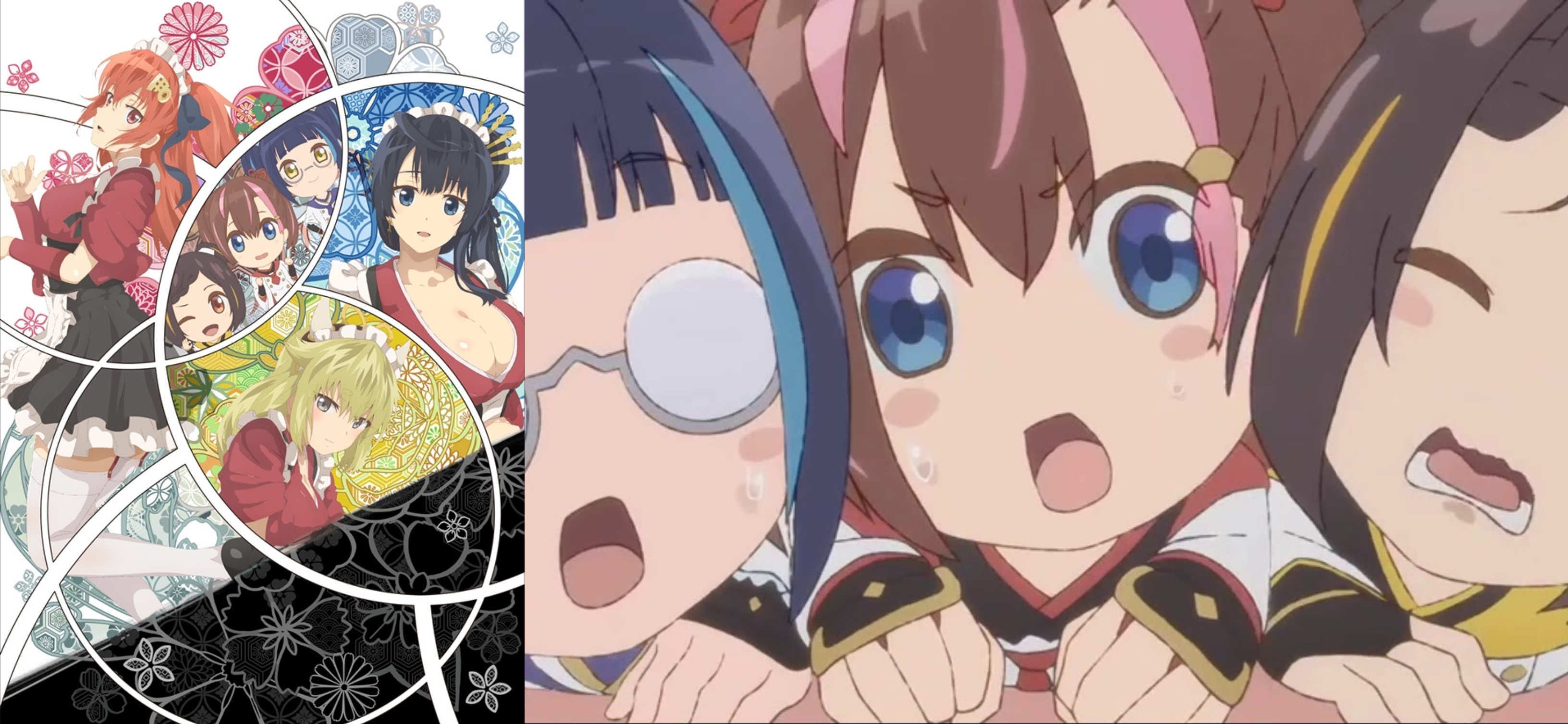
A 3-minute short anime series with anthropomorphised swords as maidens in an alternate version of Meiji Japan? Sure, sounds like an easy, enjoyable watch each week. Well, going into it with the knowledge that it's based off a gacha mobile game, I probably should've known better. There's simply no context for the setting, characters, or even the comedy — it immediately jumps into boring gags that have zero setup to make them remotely amusing.
For a series that's clearly pandering to current players or looking to allure new ones, the characters that are made the centerpieces are one-dimensional and visually washed-out. Anime made for advertising aren't bad by default, but I doubt this will make the game appealing to anyone.
Summary: Tenka Hyakken: Meiji-kan e Youkoso! will remain in obscurity where it belongs.
Val x Love ⭐1/5
Shymander
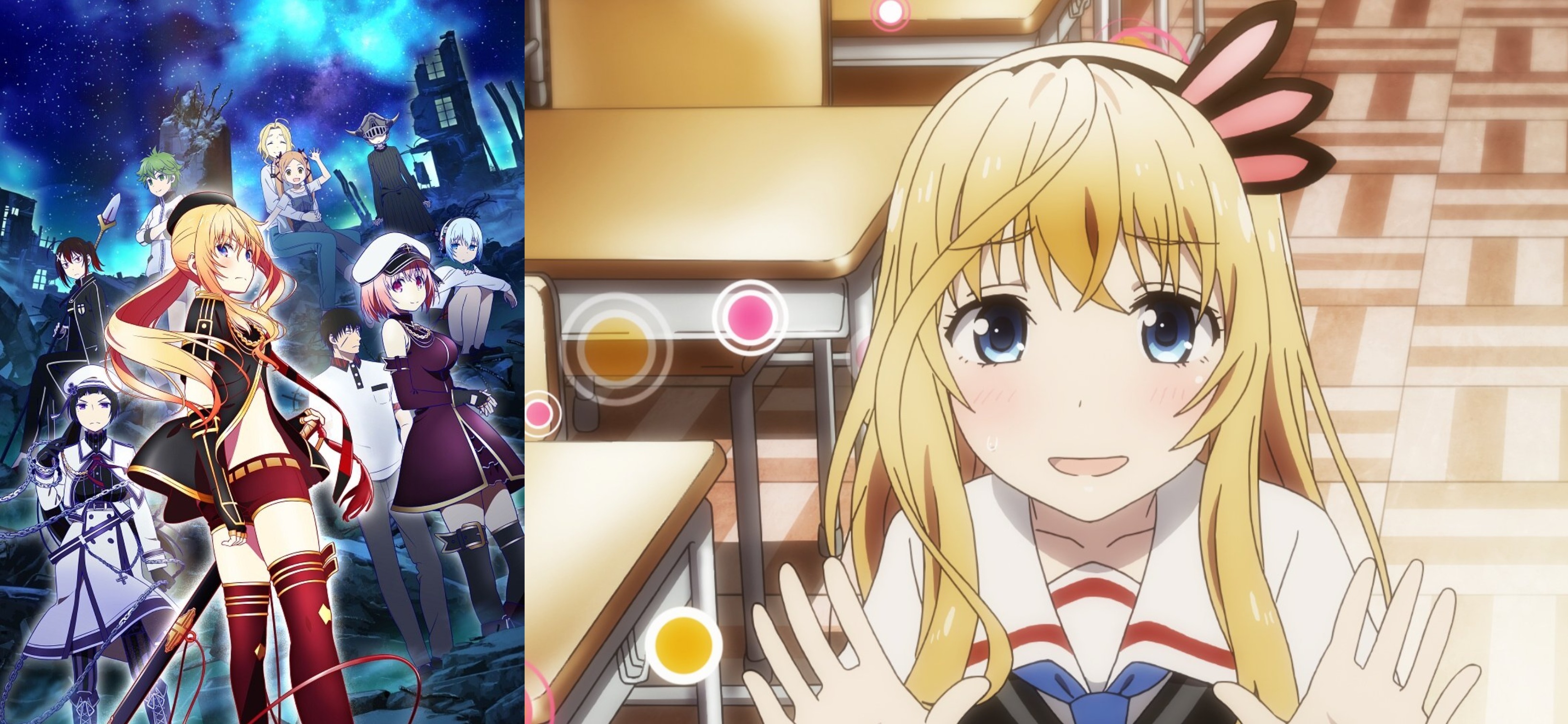
What's the most important bit to get right in an ecchi harem? The comedic situations? The sexual appeal of its female characters? Their personalities and motivations? Val x Love tries to appeal to all desires but falls completely flat on all of them — I'm certainly no connoisseur of ecchi harem, but I've watched enough over the years to know that this just ain't it.
If I asked you to come up with nine harem member stereotypes without any knowledge of the show, you'd probably nail every single female character in Val x Love. The main three girls, in particular, are probably what you'd think of first: the #1 prettiest girl in class, the student council president, and the school idol. There's nothing inherently wrong with following fundamental tropes like these as a baseline, provided their personalities and designs do something a little interesting. However, Natsuki, Itsuyo, and Mutsumi are just a scrambled mess of harem tropes and inconsistent character traits.
The object of desire, Takuma, isn't your typical scrawny tween: he's a big scary-looking dude who just wants to be left alone to study. It sounds like an improvement on paper, but he's still just as unbearable to watch as he still awkwardly flounders around, falling into compromising positions and being called a pervert. The ecchi side takes things to a higher level than usual, but it feels entirely out-of-place. Takuma goes from tripping into breasts to purposefully groping them in full view for a minute so that Natsuki can power up. Yes, that's the plot. It's a concept that's been done enough times before, but Val x Love does its best to set itself apart with a Norse mythology tie-in, which it downright disregards aside from appropriating Norse terms like Valkyrie and Hrugnir. "Valkyries grow stronger as long as they are in love" — provided you ignore the actual meaning of Valkyrie and define "being in love" as stripping in the middle of a battlefield to commit sexual assault. But perhaps it's just not my thing.
The content itself isn't quite worth 1/5 in my book, but the jarring presentation literally gave me a headache. Every story beat felt out of order or completely disconnected from each other like it was a demo reel containing five different ways to start the same episode. With nine harem members to balance within 12 episodes, I assume Val x Love will continue to be a jumbled mess of tropes and inconsistencies.
Summary: With a complete lack of coherency and entertainment, Val x Love is not a show I would recommend to ecchi harem fans, let alone anyone else.
Watashi, Nouryoku wa Heikinchi de tte Itta yo ne! ⭐3.5/5
Congress
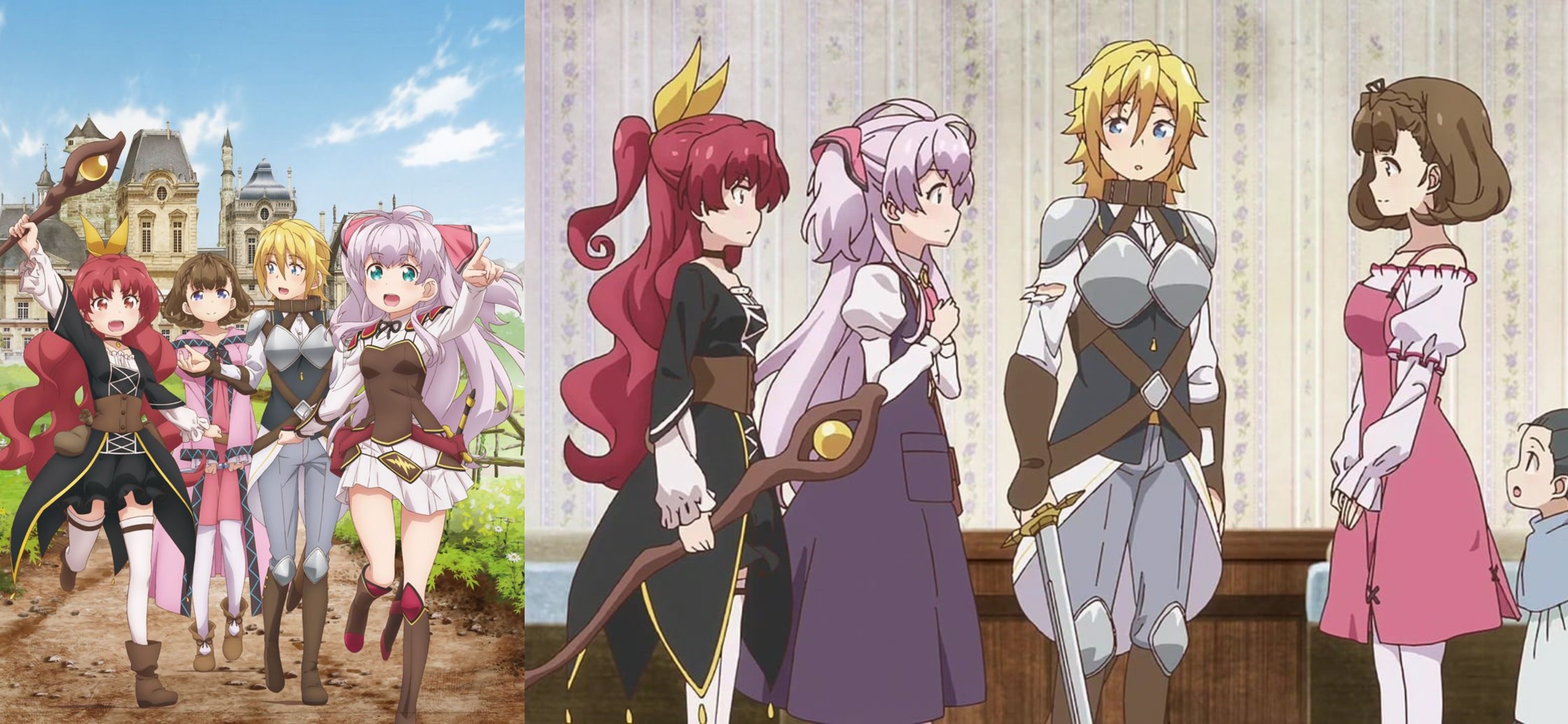
Readers of light novels, manga, and webtoons will know that there's no lack of isekai stories out there that feature female MCs. And yet, I can't think of any isekai anime off the top of my head that center around a girl, and not the typical male, other than 2002's Juuni Kokuki. It's not something I ever really stopped to think about before actually watching this show, but the very fact that Watashi, Nouryoku wa Heikinchi de tte Itta yo ne!'s main lead is a girl changes the dynamics of the isekai formula enough that it somehow, inexplicably, doesn't feel as cliche or well-worn anymore.
I found this development to be rather confusing at first, particularly because of how meta and unoriginal this show actually is. Our heroine, Adele von Ascham, died in her last life after she saved a little girl from getting hit by a truck. Our heroine is overpowered despite asking to be average (her power level ends up being the average of the weakest creature's and the strongest creature's, which is apparently magnitudes greater than that of a normal human). Our heroine meets a knight-archetype character and a mage-archetype character in very short order, and they will undoubtedly band together into a classic fantasy party that goes around adventuring. None of this is much different from the norm, and I was struggling to put a finger on why exactly I was perceiving the show the way I was. But when I went through the premiere for a second time, and I rewatched the scene where Adele describes how her only wish was to "make normal friends and live a normal life," it clicked.
There's no anger in this show. There's no angst, no pent-up frustration. Where the typical shounen or seinen isekai features a character who was wronged in their past life or gets wronged in their new life and seeks some form of revenge as a result, the story that Watashi, Nouryoku wa Heikinchi de tte Itta yo ne! has to tell features a girl who was loved in her last life, and who is now merely looking to find normalcy and happiness. She doesn't care for power. She doesn't want to get back at an existence that once let her down. I'm pretty sure she's not going to attract a harem (which, I might add, is a trope I absolutely despise). And so it's all just... pleasant and refreshing.
This isn't to say the show is without fault, of course. Though it feels different, it's still a tropey isekai story at its core. And the humor, heavily reliant on exaggerated facial expressions or tired old gags (the breast-size comparison jokes have long been run into the ground, guys, stop using them), managed to get a real laugh out of me only once, when Adele shows off her superhuman strength to a dumbfounded butcher.
But in all, Watashi, Nouryoku wa Heikinchi de tte Itta yo ne!'s premiere is an exceedingly pleasant affair. Its characters are likable and cute (even the antagonists, to some extent), and the happenings it guides us through are nothing if not delightful.
Summary: As far as isekai "hooks" go, this one's is lazier than most. However, its uncommonly playful tone and lovable cast make it easily the most charming isekai offering this season.




